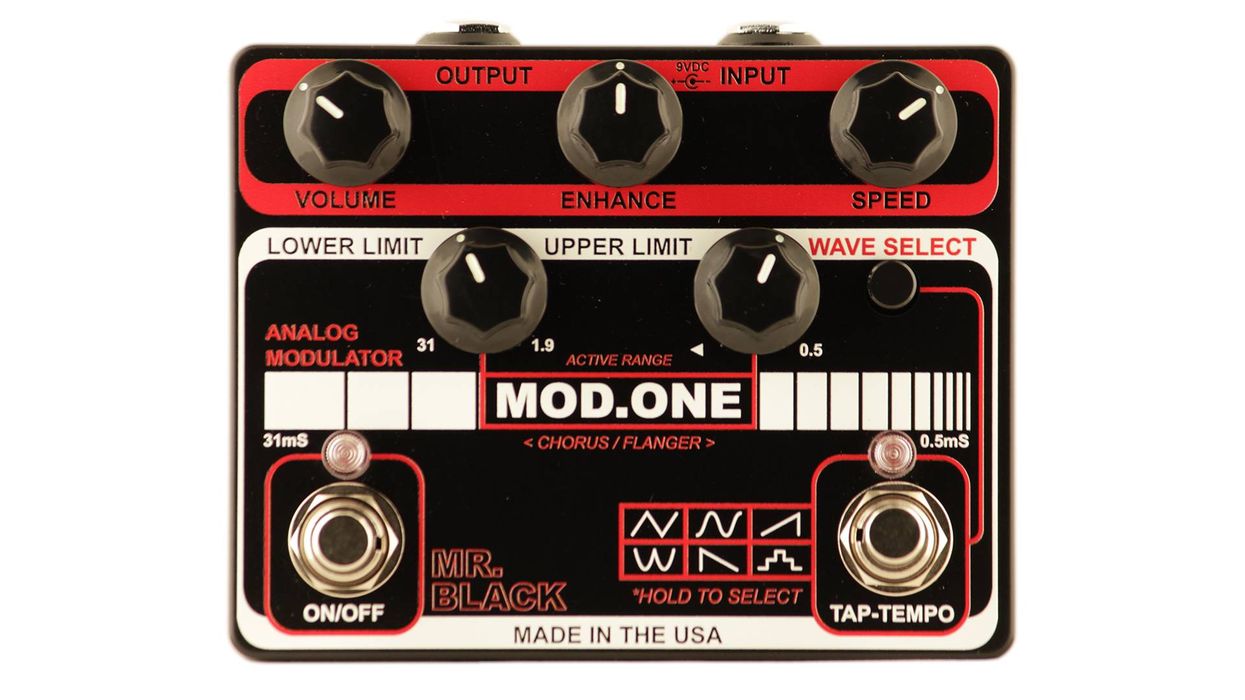|
Rather than repeat ourselves in a nutshell here, we’ve gathered a select group of items from all that gear, to show you a few things we thought were really special, and broken it down into twelve categories. All the gear we’ve singled out here either exemplified a trend, represented new ideas, displayed first-rate attention to quality, was real bang for your buck, or possessed some other quality that’s harder to name. Whatever the name, you can be sure our reviewers thought it was something worthy of your attention. Of course, a lot of this gear could easily fit into more than one of these categories, but we tried to put things where we thought they would best highlight the reason why each reviewer was so impressed. Watch for “revisited” products, where our reviewers give you some extra input, now that they’ve let the gear’s effects soak in.
Without further ado, the 2008 Premier Gear Awards go to…
LOW WATTAGE/HIGH PERFORMANCE
There’s no denying the impact that the low-wattage resurgence has made on the amplification industry in the past decade. This year saw a mind-boggling number of amps checking in at increasingly miniscule wattages, yet somehow retaining tonal qualities that blew our minds. We averaged nearly one low-wattage amp review per month this year, so the pool for this award was broad. The Premier Gear Low Wattage/High Performance Award recognizes those companies that broke away from the pack.
| Reinhardt SV 18 Not all low-wattage amps are quiet, as evidenced by the gig-ready Reinhardt SV 18. Starting with the same basics as the Marshall 1974X that spawned the entire genre—three 12AX7s, two EL84s and a EZ81 rectifier tube—Bob Reinhardt created an amp that sounds great at pretty much any setting. This versatility made the amp great for a number of genres, but fans of old-school Marshalls should take special note. “Reinhardt Amplification has come out swinging, and in the process has placed the SV 18 near the top of a crowded field.” – March ’08
| 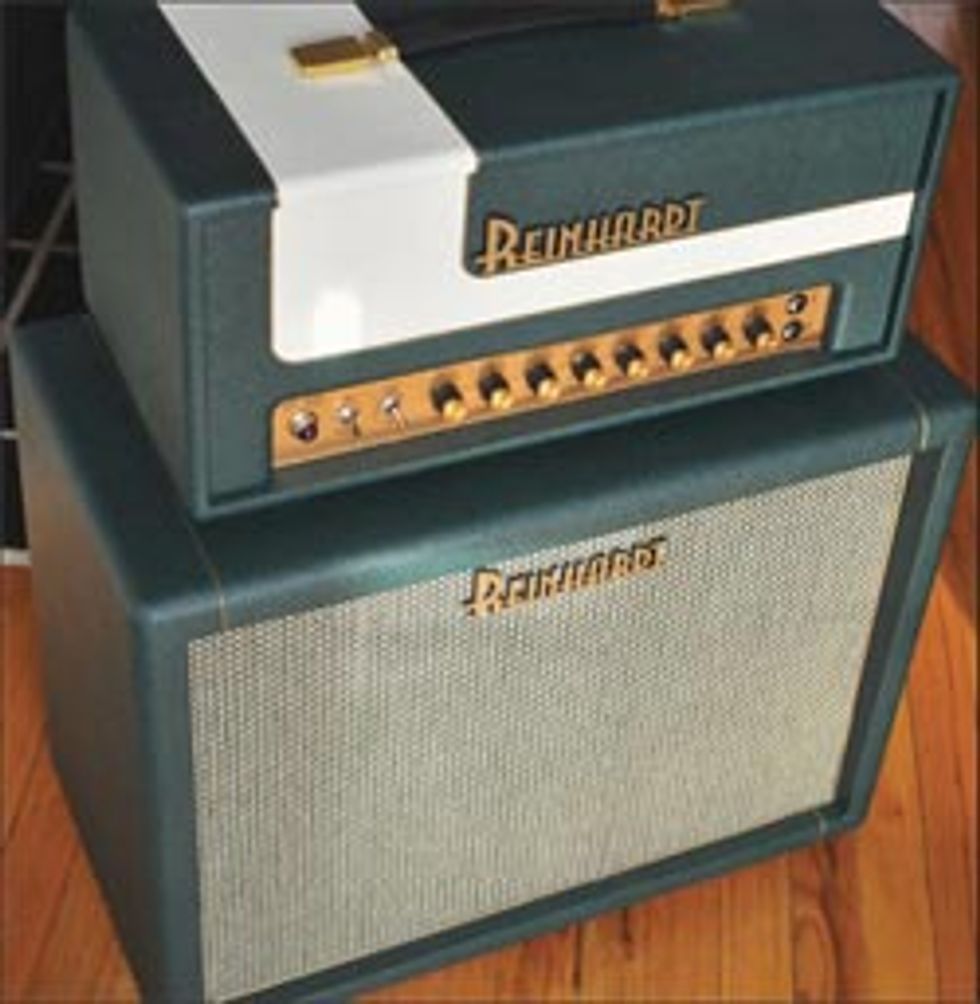 |
| Read the review... |
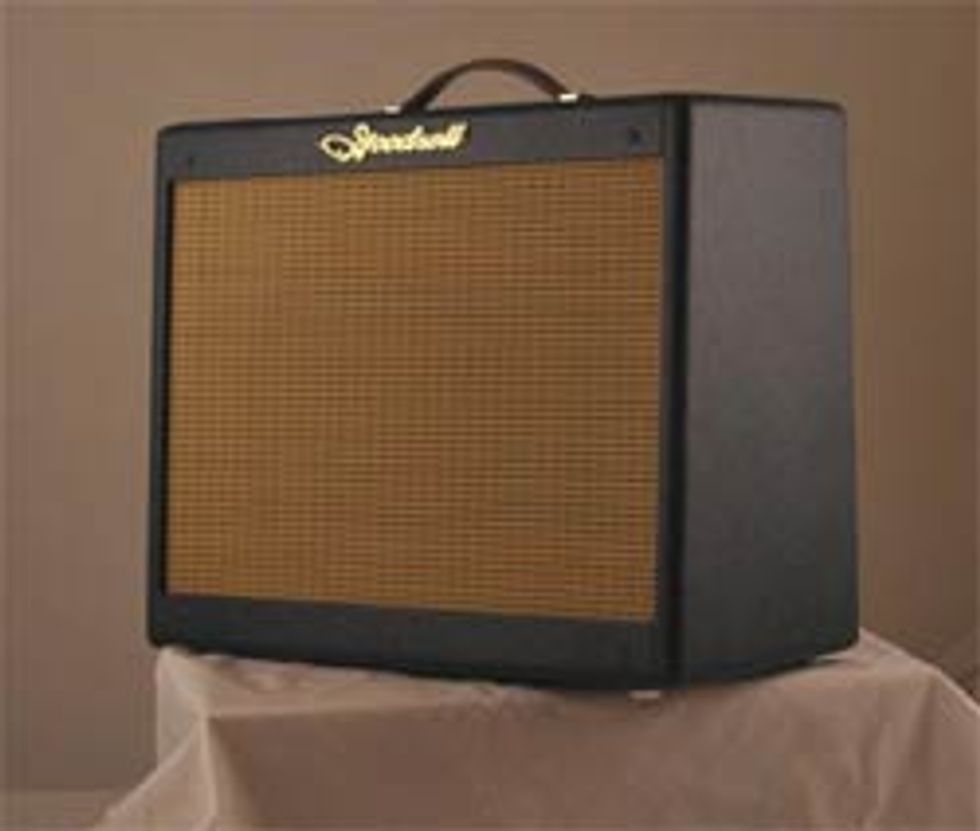 | Goodsell SuperSeventeen Mark III The SuperSeventeen Mark III lent an EL84 chime and sparkle that shined the brightest somewhere between clean and dirty. If 17 watts is too high, it is switchable down to 5 watts, which opens up even more tones. Said reviewer James Egolf [August ‘08], “Although the Mark Three always sounds like a Mark Three, it hints at a bastard amalgam of an AC15 and a tweed Deluxe in 17-watt mode, and suggests an old Princeton in a 12” enclosure when producing 5 watts.” |
| Read the review... Watch the demo... |
| REVISITED: | 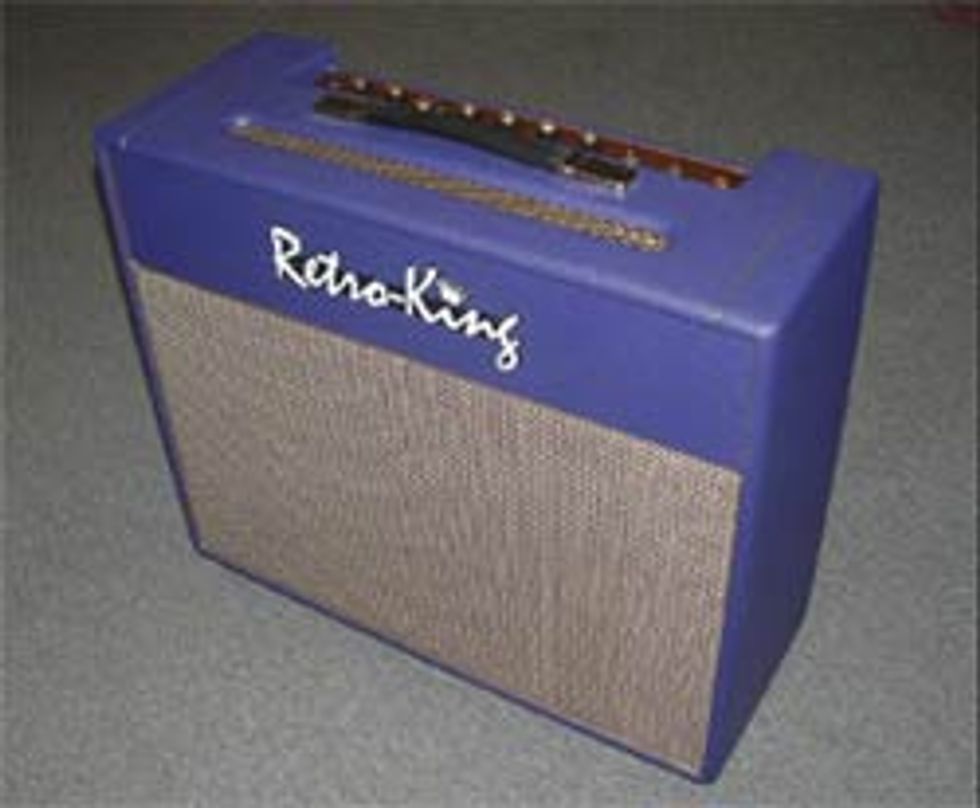 Read the review... Watch the demo... |
| Retro King 18-Watt Combo -- Revisited “I actually purchased [the amp], which alone speaks volumes about it, as I already have a number of great amps in my stable. The decision to do so was based on one thing alone: the tone. I discovered that when using the amp with the master at various positions, the degree of output tube saturation could be so varied that I could use the amp for a much wider palette of tones than I had imagined. I have occasion to play a variety of types of gigs both live and in the studio, and the light weight and smaller size made it a great choice for both of these venues. With my Les Paul and the BSM Rory Gallagher booster pedal I am able to get an absolutely vicious harmonic-laden octave sustaining tone that I think any rocker would die for. With my Strats and Teles and using no pedals at all I could do all the modern snarly country and blues licks with great touch sensitivity and feel. It’s not the loudest amp on the block, but it speaks more convincingly than most others.” – Kenny Rardin |
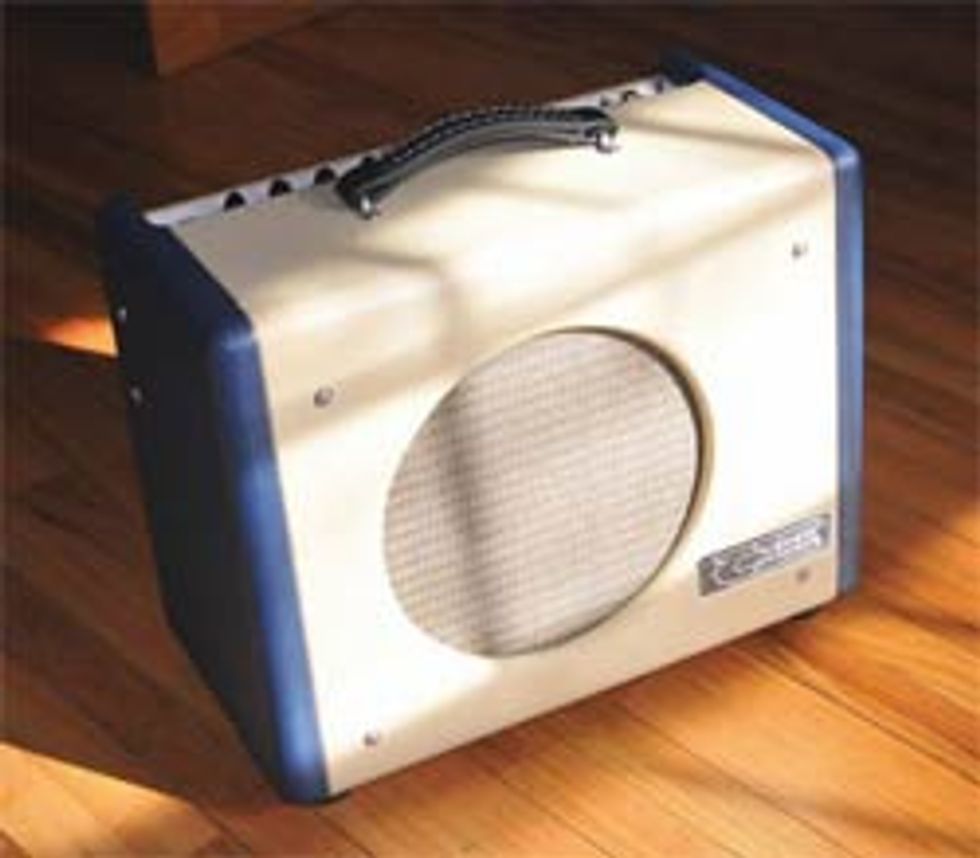 | Carr Mini Mercury Want low wattage? Try a variable output that gets as small as a tenth of a watt. The Mini Mercury’s downsizing to a 10” speaker (from the Mercury’s original 12”) gave it a completely new sound when coupled with the amp’s EL34s. The amp’s Boost circuit was the top draw, however, bringing a smile to the face of reviewer James Egolf, who said [March ‘08], “If you’ve ever uttered the words ‘British’ and ‘Top Boost’ in the same sentence, the Boost circuit alone is worth whatever price Steve [Carr] wants.” |
| Read the review... |
LOUD AS HELL
There’s something to be said about just getting real f’ing loud—and sounding real f’ing good while doing it. These amps and cabs are singlehandedly responsible for hundreds of police calls across the country. They fly in the face of the boutique crowd’s ever-shrinking war of wattages and proclaim, “I’m here, and I rock.” For amplifying our guitars to the moon, we bestow the Premier Gear Loud as Hell Award.
| Mills Acoustics Afterburner Cab A cabinet winning an award? Hell yeah. A beastly cab, the Afterburner 4x12 weighs 116 pounds and is loaded with Celestion V30s. Attention to detail and thoughtful innovations like the ported, virtually voidless plywood baffle were impressive, but it was what came out of the cab that reviewer Brett Petrusek described as, “huge bottom-end, clear and articulate mids and highs and a larger-than-usual soundscape.” | 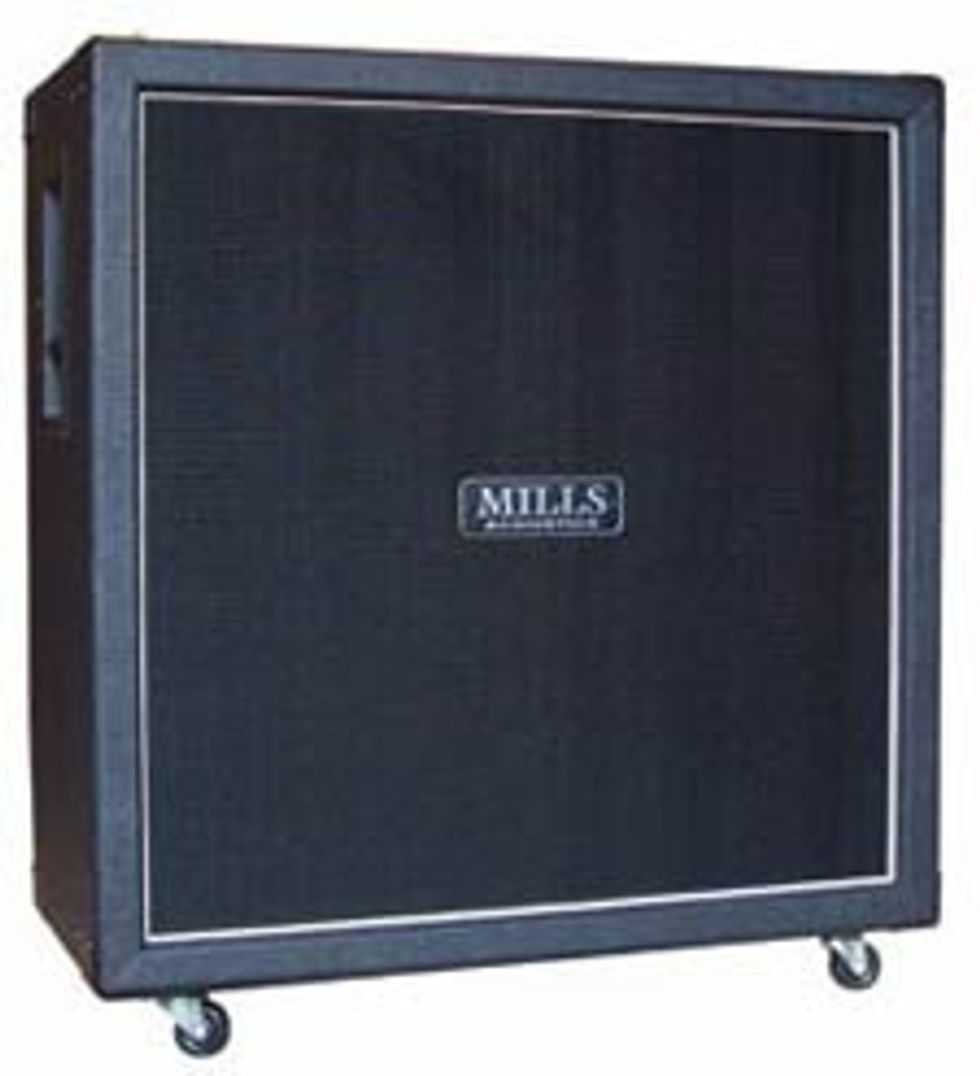 |
| Read the review... |
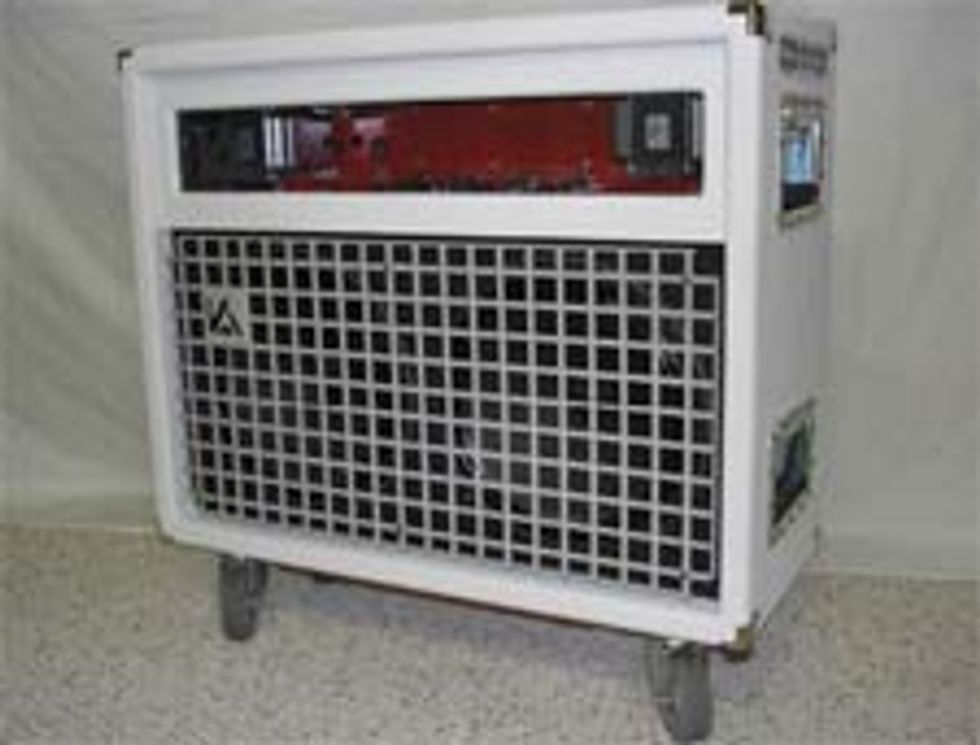 | Industrial Amps Rock 120 Industrial Amps’ products live up to their name, with no-nonsense, heavy-duty casing. The amp really impressed, however, with gain to spare and an expressive, authentic tone. The Rock 120’s 120 watts poured out a sufficiently saturated tone without getting muddy, and really shined through a Strat, drawing comparisons to a Fender Deluxe through its Classic channel and to a Mark II/Soldano hybrid through its Heavy channel. “While the price may be equivalent to other boutique amp models out there, the Rock 120 defi nitely gives you a lot more, in terms of sound and power.” – February ‘08
|
| Read the review... Watch the demo... |
| Reason SM50 Don’t let the Reason’s 50 watts fool you into thinking it doesn’t deserve this award. We gave a double take upon first listen, thinking it had to be a 100-watter. Wrong. The SM50 delivered a variety of tones, thanks to its three-way Normal/Stack/Bright switch that takes a Strat from JTM45 territory to near-plexi sounds to a modified JCM800. Simply put, this is a good-old-fashioned rock n’ roll amp that delivers both vintage and volume in equal parts. “If you like vintage tones, and would like to use them as a jumping off point to make some too-loud rock n’ roll, give the SM50 an audition.” – October ‘08
| 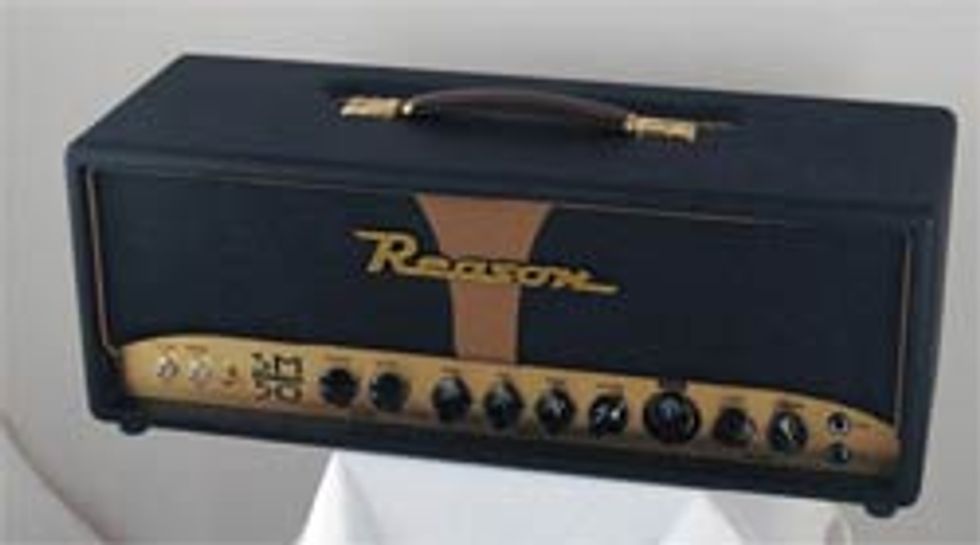 |
| Read the review... Watch the demo... |
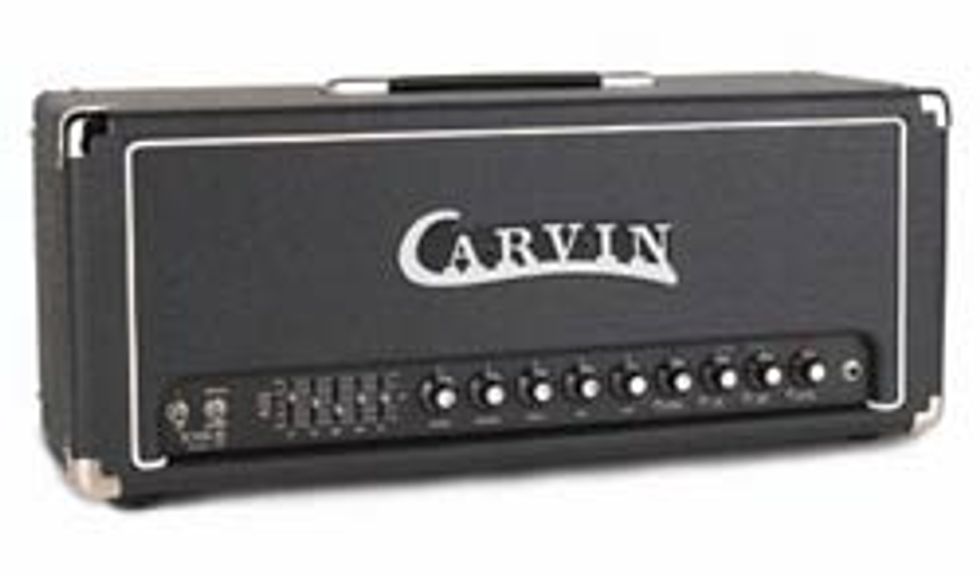 | Carvin X-100B The Carvin X-100B is a special recipient of the Loud as Hell award, because it allows you to go from an ear-splitting 100 watts down to 50 or 25 if your ears need to take a sonic break. The overdrive channel was the highlight, giving pure, musical overtones and fat distortion. Of course, the requisite gain was there; said reviewer Kenny Rardin [November ‘08], “[The Gain toggle] switch will produce any amount of over-the-top sustain and gain anyone would ever need.” Top it off with sexy white tolex, and we’re hooked. |
| Read the review... Watch the demo... |
VERSATILITY
If you’re recording on a budget, or gigging with limited space, it’s essential to have a few units capable of adapting to many different functions; and it’s always a good idea to have something that’s ready and willing to cover a lot of sonic territory. We’ll give kudos to anyone who can zero in on one thing well; when you do many things well, it warrants extra recognition. For providing us an outstanding array of uses in a single package, we present our Premier Gear Versatility Award.
 Fractal Audio Axe-Fx The Axe-Fx rackmount effects processor boasts 49 amp types, 23 cabs and 25 effect types (with multiple iterations of each) that can be combined and routed endlessly. The versatility was through the roof, with so many convincing tones from stellar reverb to vintage classics with added controls that you may just take this everywhere, from the recording studio to the road. “I can’t say enough good things about this box… a road-worthy all-in-one guitar preamp/effects processor,” said reviewer Steve Ouimette [September ’08, online]. Read the review... Watch the demo... |
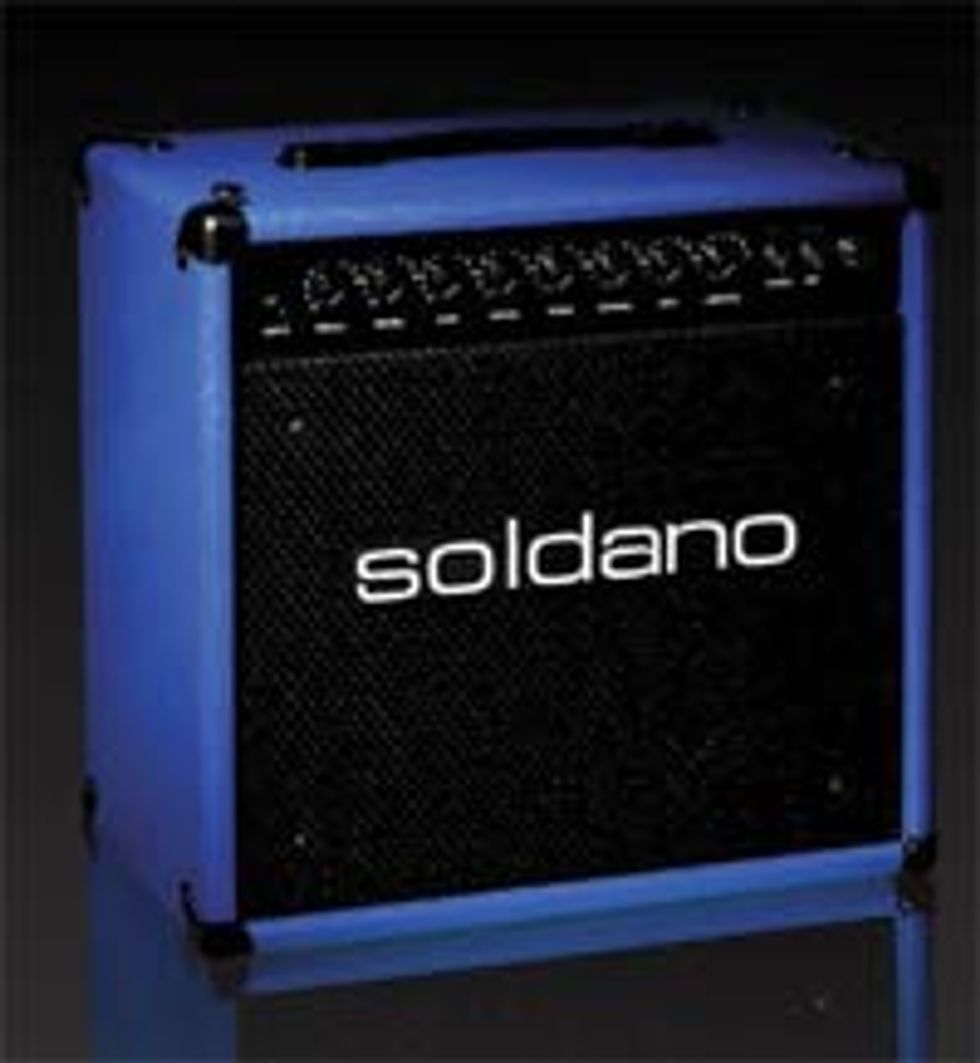 | Soldano 44 BCM Reviewer Mike Mueller said [August ’08, online], “I would rank this amp’s versatility somewhere between unbelievable and ridiculous.” The 1x12 combo BCM—which stands for Blues City Music, where the amp is exclusively sold—is as capable of producing crunchy classic rock as it is sharp death metal. Its 50 watts are louder than expected, and the reverb holds its own. Add customizable tolex, speakers and preamp configurations, and you have even more options for tonal bliss. |
| Read the review... |
| Xotic BB+ Xotic’s BB+ is a little box packed with a lot of tone. It was two channels that can be stacked in either direction, with tone controls for each. The flavors it produces include all of the usual suspects—plexi, brown sound, tweed—but leave the door wide open for tone shaping of your own. The versatility is key for live situations, complementing whatever needs you have. Reviewer Chris Burgess said [August ’08, online], “While it might not be the last boost/overdrive pedal you ever buy, it will certainly be the last one you’ll ever think about selling.” | 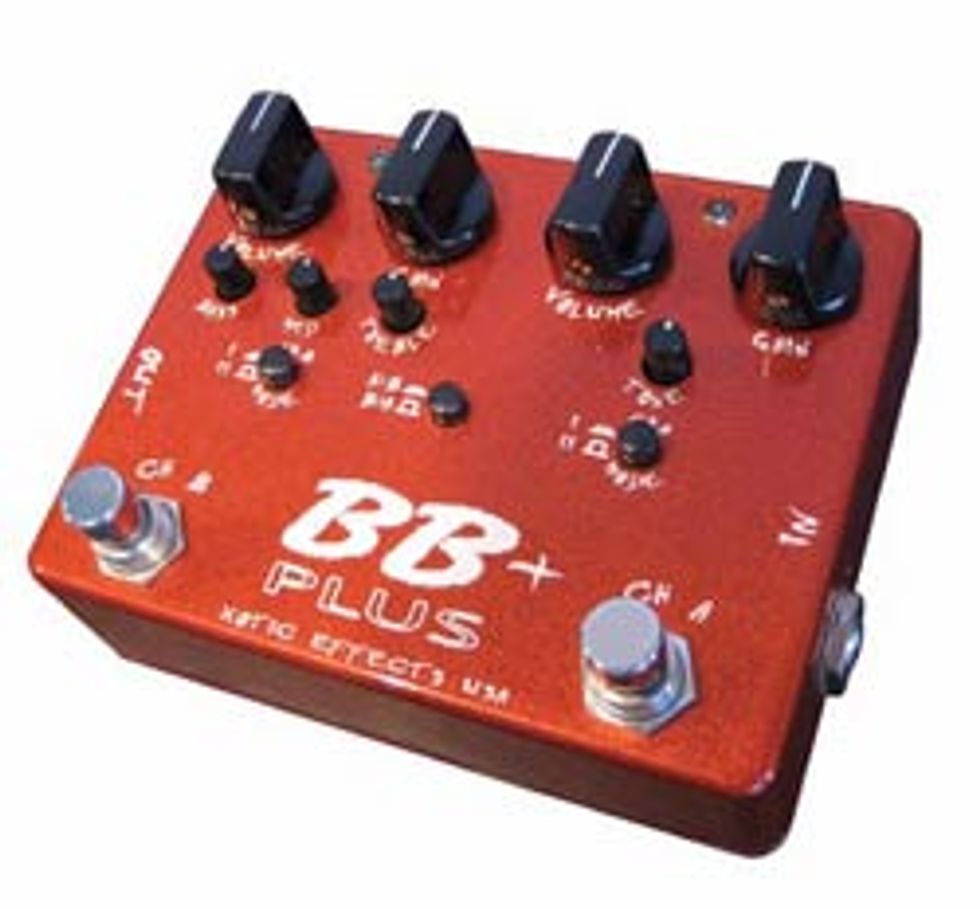 |
| Read the review... |
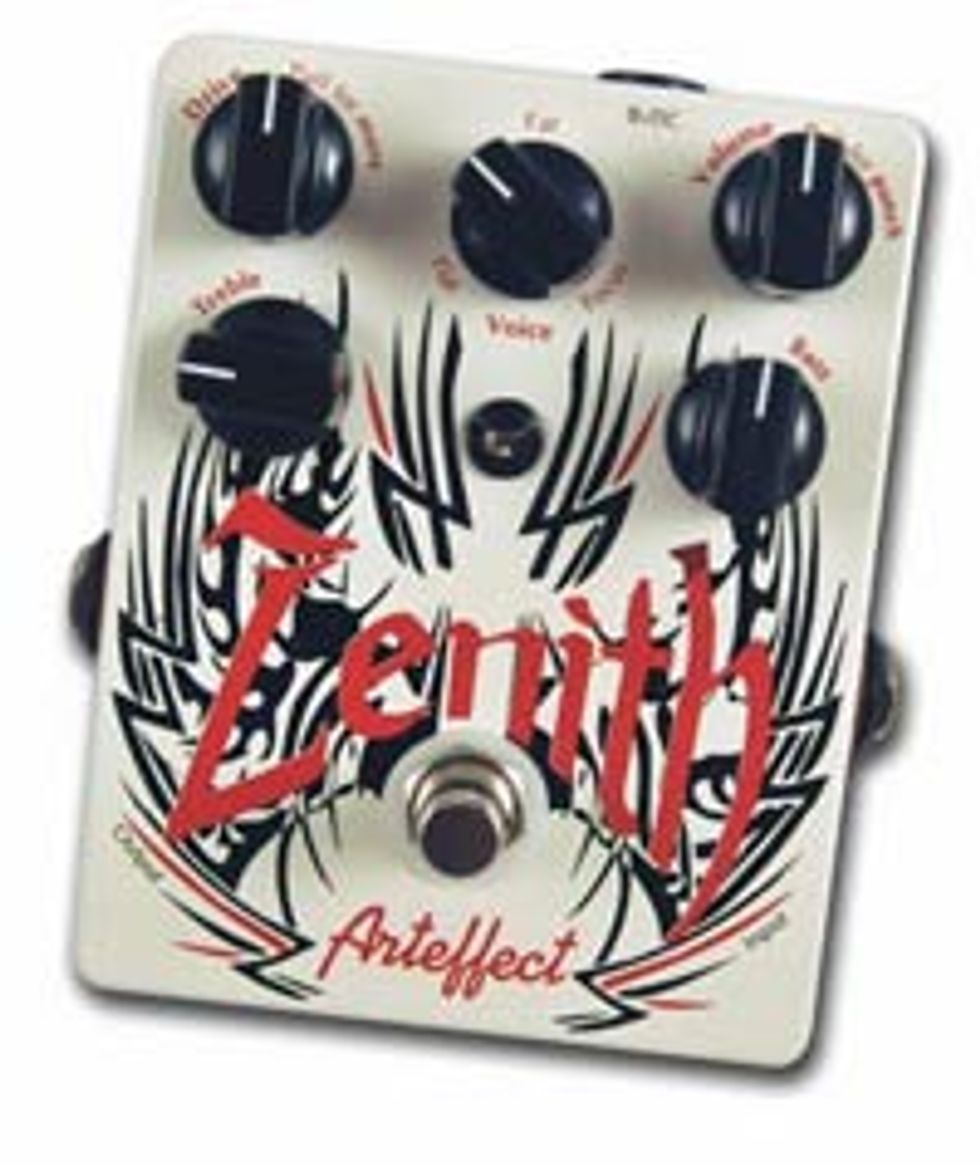 | Arteffect Zenith Overdrive An overdrive with a mess of available tones isn’t always a good thing, but the Zenith manages to make each one count. The list of tones available with some working of the pedal’s five knobs reads like a checklist of desired tones: clean boost, Marshall, Screamer, Southern rock, woman tone, metal, and more. To top it all off, the pedal blends into your existing rig and tone flawlessly. “The Zenith is an anomaly, offering an incredibly broad range of tones with nearly all of them kicking ass.” – June ’08.
|
| Read the review... |
FRESH APPROACH
This is the kind of gear that makes you think, “What a great idea?” at the same time you’re thinking, “Why haven’t we had this all along?” All of the gear in this category is being recognized either because it solves a problem in a new way, reinvents a genre, or combines things we hadn’t thought to put together… or else because it’s just plain cool. This is our Premier Gear Fresh Approach Award.
| Jekeko Fixed Wah If you’ve ever found a good parked Wah tone, then you’ve probably also lost it. A stompbox-housed Wah pedal that loses the treadle for easily replicated parked tones is such a great idea that we were surprised it took this long. If you’re into the parked sound, there’s no reason not to try this pedal out; you may never look back. There is nothing tonally lost, and dialing in is a breeze. Said reviewer James Egolf, “If you’re in the mood for some parking, order one, learn ‘Cracked Actor’ and ‘Mother Mary,’ then just try to wipe the grin off your face.” | 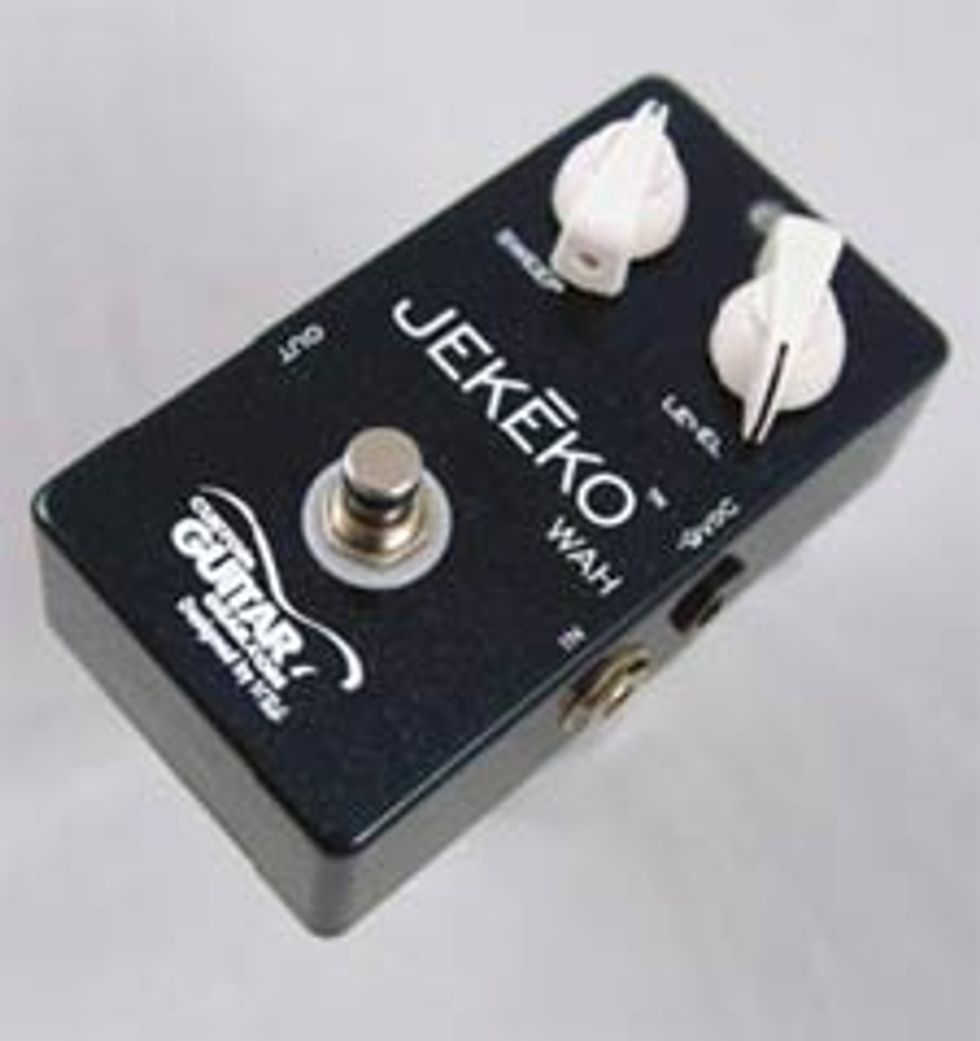 |
| Read the review... |
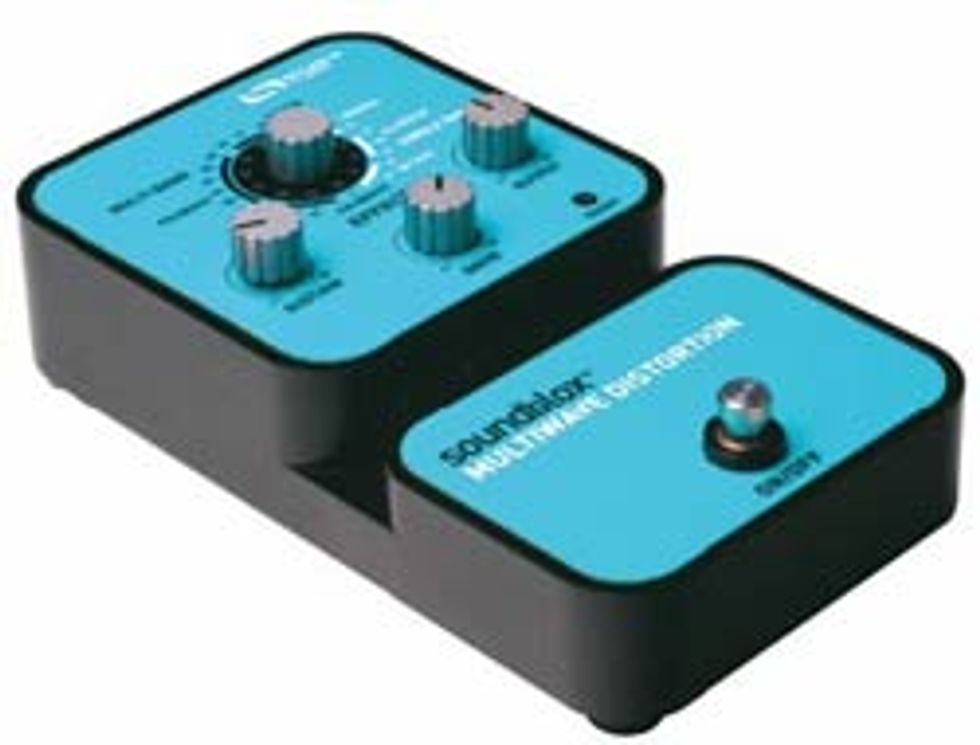 | Source Audio Soundblox Multiwave Distortion Source Audio’s new Distortion can’t be described by comparisons to classic tones, because nearly everything that comes out of it is brand new. After listening to a few dozen ODs this year, this was incredibly refreshing. The pedal handles complex chords with clarity, and the sounds are easily sculpted through your string attack. You’re going to play with this one for a while. On top of that, we have to mention the Hot Hand device, which Source Audio sells separately. The motion sensor combined with the already robust offerings of the Multiwave distortion opened up so many sounds that reviewer Gary Guzman noted [August ’08, online], “There were so many different sounds pouring out of this unit that other players will think you’re using multiple effects…” Um, yes please. |
| Read the review... |
| Ribbecke Halfling Pin Bridge Acoustic It’s not often that an innovation actually becomes an entirely new instrument. With an archtop in the front and a flattop in the back, the Halfling somehow takes the best of both worlds and combines them into one guitar. You get the smoothness and warmth of an archtop with the liveliness and brilliance of a flattop. Ribbecke made more innovative changes with the Pin Bridge, which takes the Halfling concept and applies it to an acoustic platform. Like many innovations, the Halfling Pin Bridge takes a bold hand to jump in and get the most out of it, but the result is completely worth it. “If you’re a serious and confi dent player who’s not afraid to live a little bit large, this guitar will rock your world. This isn’t the only guitar you’ll ever need, but it’s one hell of a ride.” – October ‘08
| 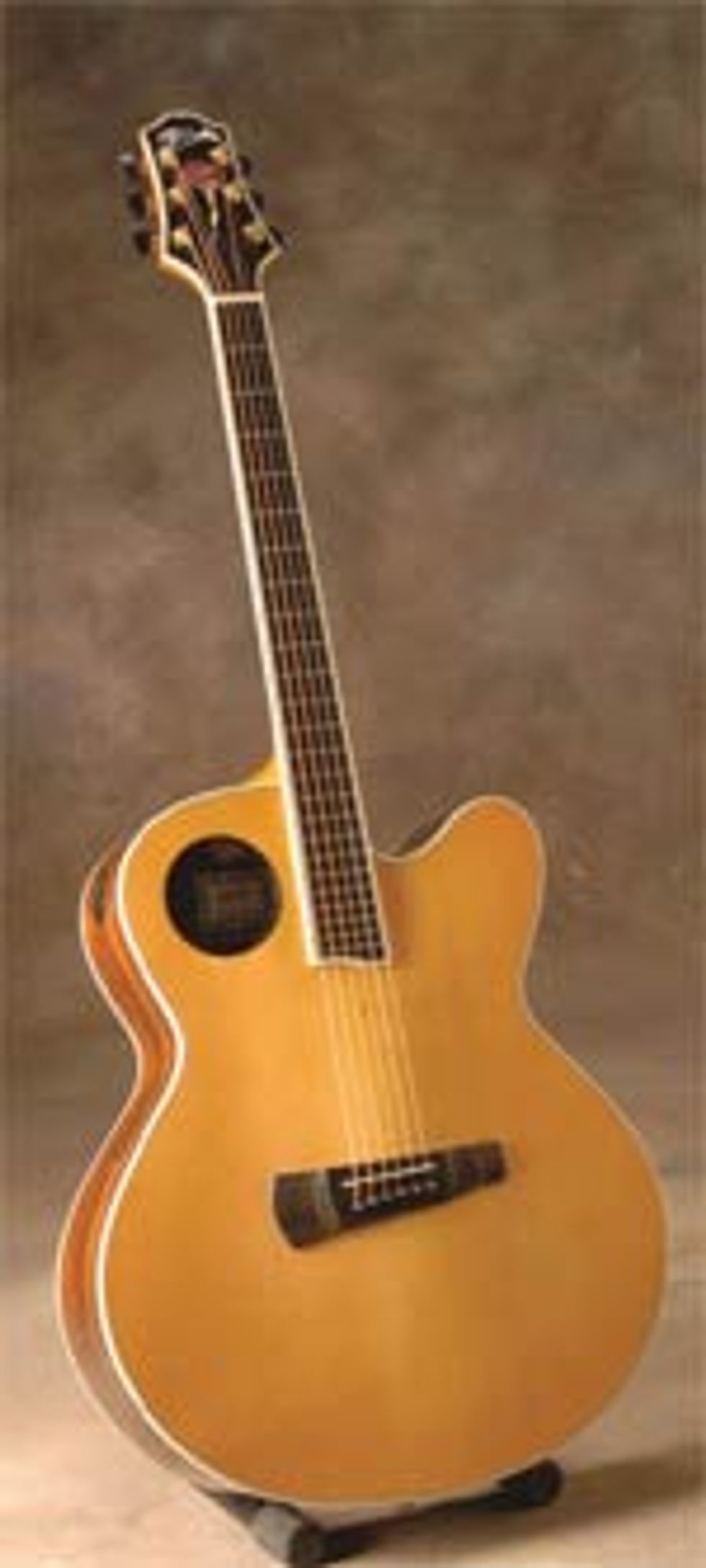 |
| Read the review... |
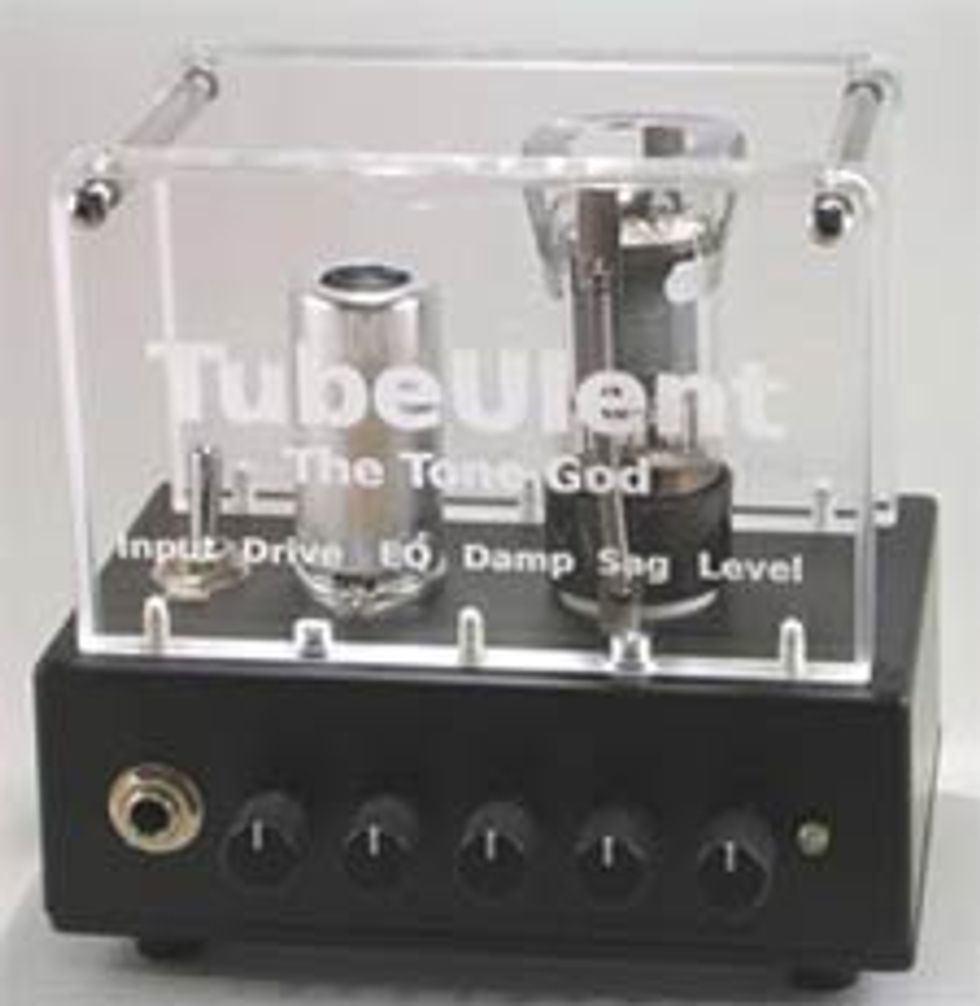 | The Tone God TubeUlent The TubeUlent doesn’t hide its innovation behind a standard packaging. If we saw this thing onstage with someone, you bet we’d be asking about it after the show. Of course little amps aren’t new, there are a number of bit-sized combos around the office. But a tiny tube amp that sounds this good, we haven’t encountered before. Both single coils and humbuckers love this little amp, and it can be used well as an amp, a preamp, a distortion effect, making it a good contender for the Versatility award, if it didn’t blow us away with its originality. “The TubeUlent is a great sounding amp that will open you up to new possibilities with your sound and your rig.” – August ’08, online
|
| Read the review... |
| Peavey Revalver MKIII Amp modeling software hasn’t quite been like this before. Besides coming stocked with models for Peavey, Marshall, Vox, Fender, Mesa Boogie, Matchless and others, the program conjures up some original amps as presets. From there, you can swap tubes, mix and match sections of completely different amps, change resistor values and build whatever setup you desire, even if it’s impossible in the real world. Cabinets are equally tweakable, and in the end you come away with knowledge you can apply to your real amps and cabs. Add in convincing responsiveness, and you’re in a whole new category of software. Reviewer Roger Adler said [September ‘08], “With this much great tone at your fingertips, the choice should be easy.” Tweak away. | 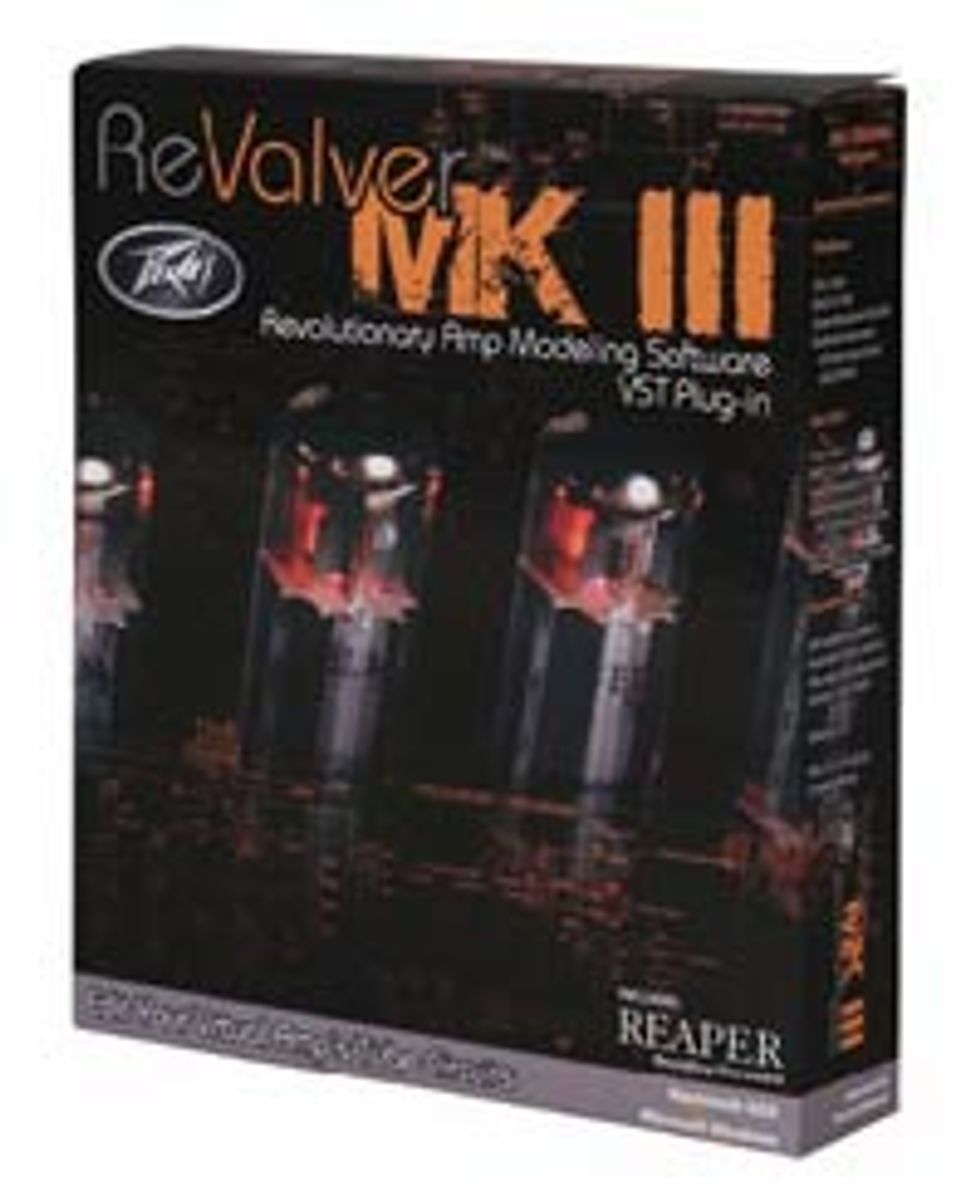 |
| Read the review... |
NICE PRICE
If you’re like us, it’s been a few weeks since you’ve last looked at your stock portfolio. Maybe your cupboard is starting to take on Ramen noodles and Hamburger Helper. Suddenly, the price tag on an instrument can take on a whole new meaning. When a company can deliver the right tone at the right price, it’s a rare feat. For these companies, we introduce the Premier Gear Nice Price Award.
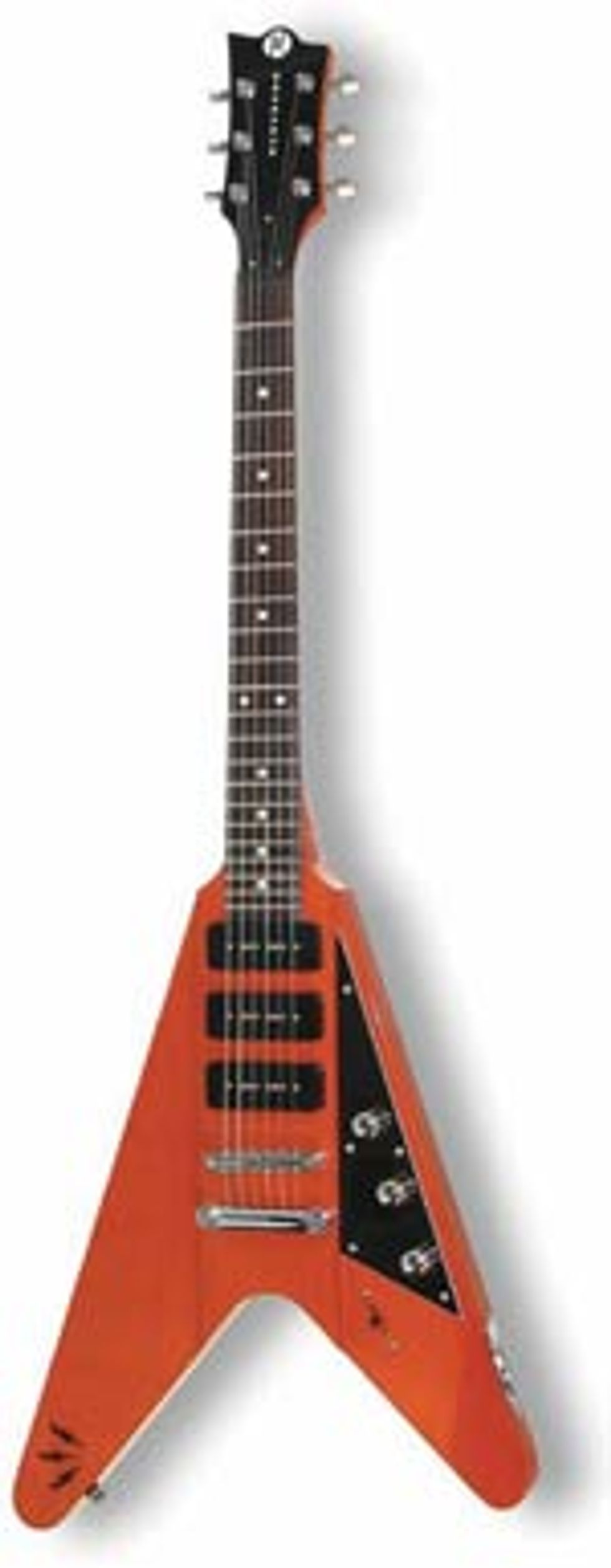 | REVISITED: |
| Reverend Ron Asheton Signature – Revisited “Since reviewing the Ron Asheton Signature guitar [$599 Street] from Reverend, I’ve had the opportunity to play a number of other guitars, each espousing its rock credentials in one form or another. But I have yet to find another instrument outside of Gibson’s stripped-raw and beautifully bare Les Paul BFG that so effectively captures the essence of rock n’ roll. From the triple stack of P-90s to the can’t-miss-it orange V design, the Ron Asheton proves that design isn’t dead in the guitar world. It’s truly a bold, beautiful thing.” – Adam Moore Read the review... |
| Fishman Matrix Infinity Undersaddle Pickup The Fishman Matrix Infinity [$139.99 Street] took Fishman’s best-selling Matrix acoustic pickups and added a preamp module. The undersaddle pickup was an easy install, with no soldering required, and did its job with great clarity. Said reviewer Gayla Drake Paul [July ‘08], “The clarity was remarkable; I had no problems hearing every note over the background noise and nothing got buried or dropped out at any point along the spectrum.” | 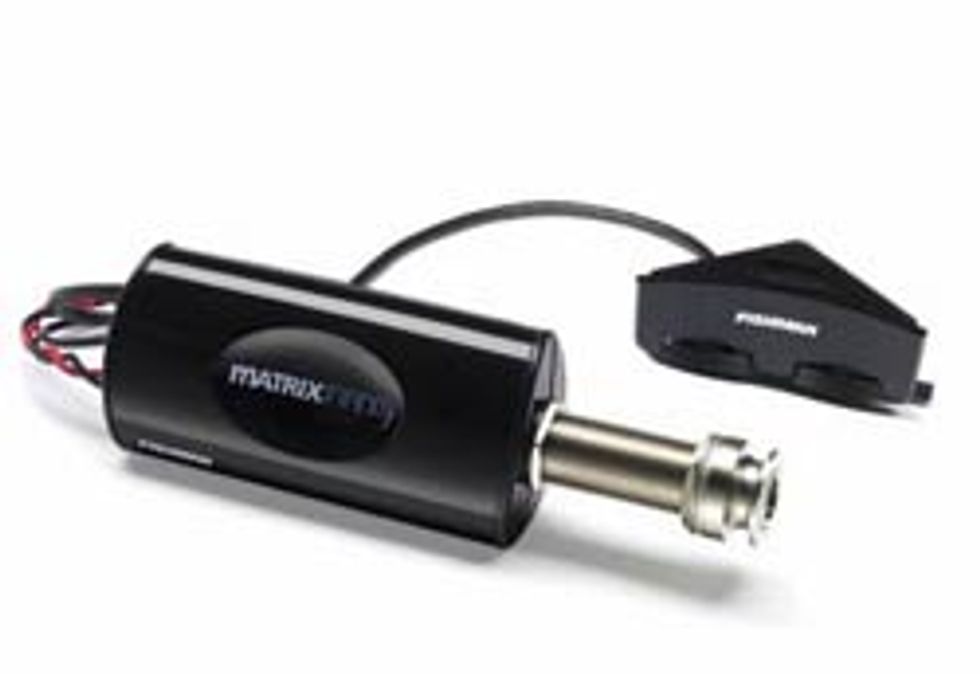 |
| Read the review... |
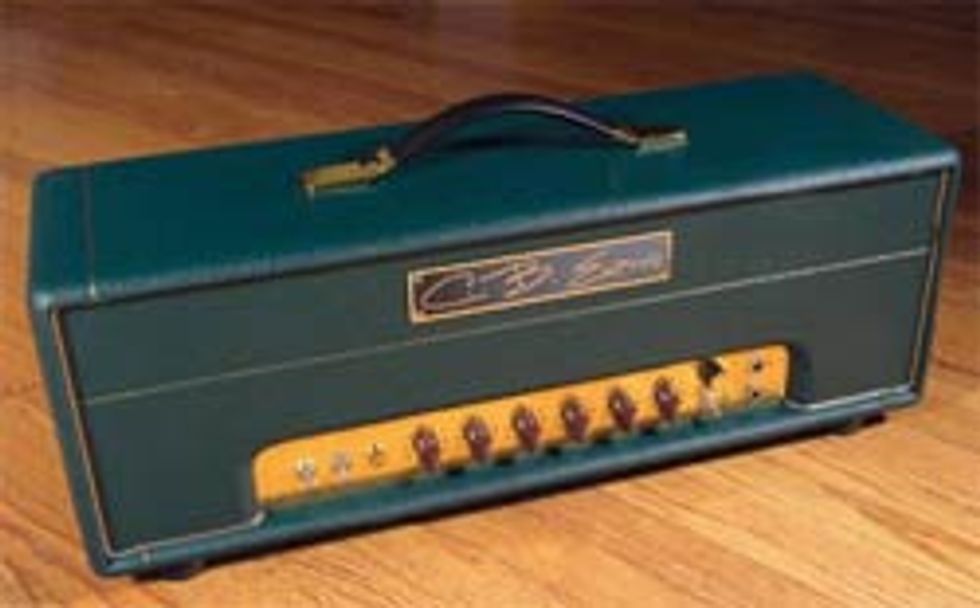 | C.B. Evans Spitfire The C.B. Evans Spitfire [$1499 direct] has all the makings of a great boutique head—a vintage flavor with a twist, impeccable build quality— but with a price tag that seems mismatched. The Modified Mode, coupled with the amp’s two gain knobs, allowed gain to be dialed up or down for everything from a slightly overdriven tone to a full-on heavy metal high gain tone. Reviewer Gary Guzman called the Spitfire, “An instantly hot-rodded amp without the big price tag.” |
| Read the review... |
| St. Blues Mississippi Bluesmaster The Mississippi Bluesmaster [$700-$800 Street] gets down to the business of thick and meaty blues with two customwound Zebra humbuckers. This is a nononsense guitar that you won’t worry about spilling beer on, and will be comfortable to play multiple sets with. No B.S. doesn’t mean simple sounds, however. Reviewer Jeff Carey said, “You’ll find this is a very responsive guitar, and there are a wide range of sounds available, even within the Bluesmaster’s simple electronics setup.” Read the review... | 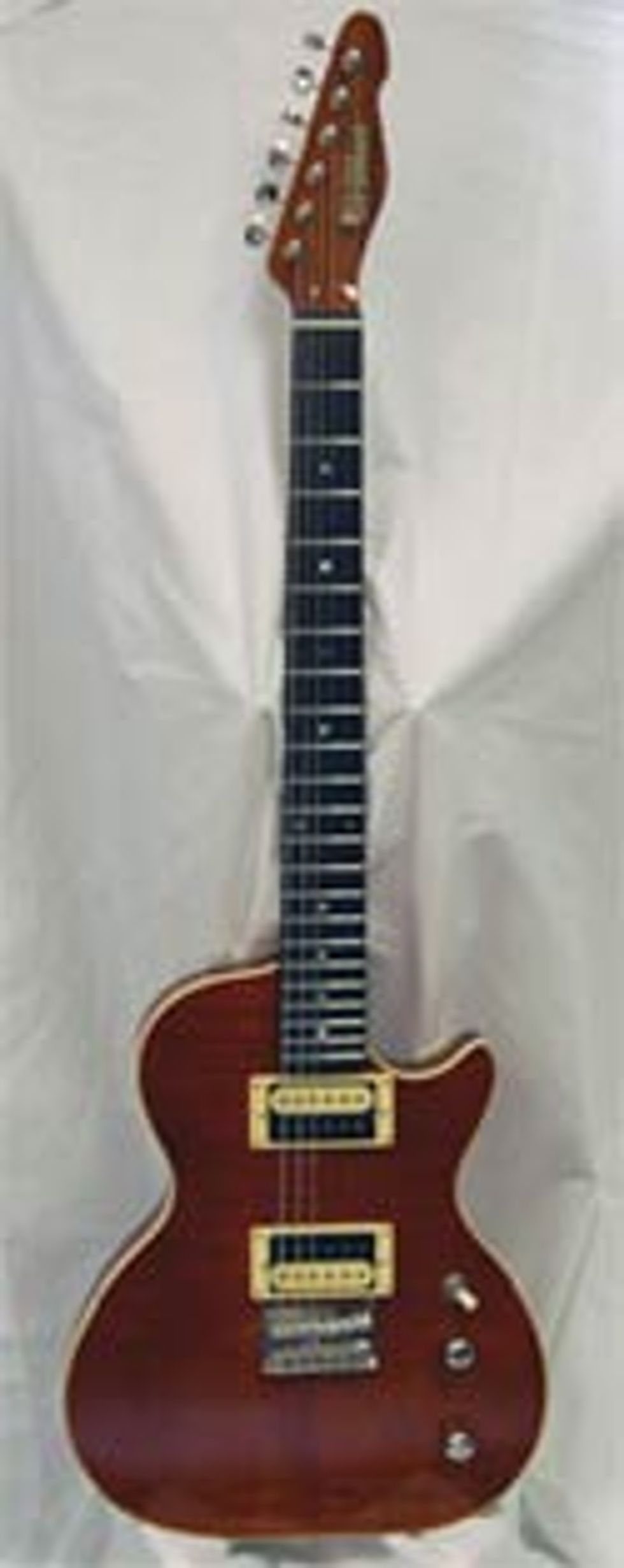 |
TOE TO TOE
It takes an enormous amount of respect, admiration and good, old-fashioned gumption to take a classic piece of gear for your inspiration and then build something that stands up not as a copy, but as an equal. When we see gear that rivals its archetype in quality, tone, and playability, we think that should be saluted. For those that stand up to their icons, look them in the eye and command respect, we introduce our Premier Gear Toe-to-Toe Award.
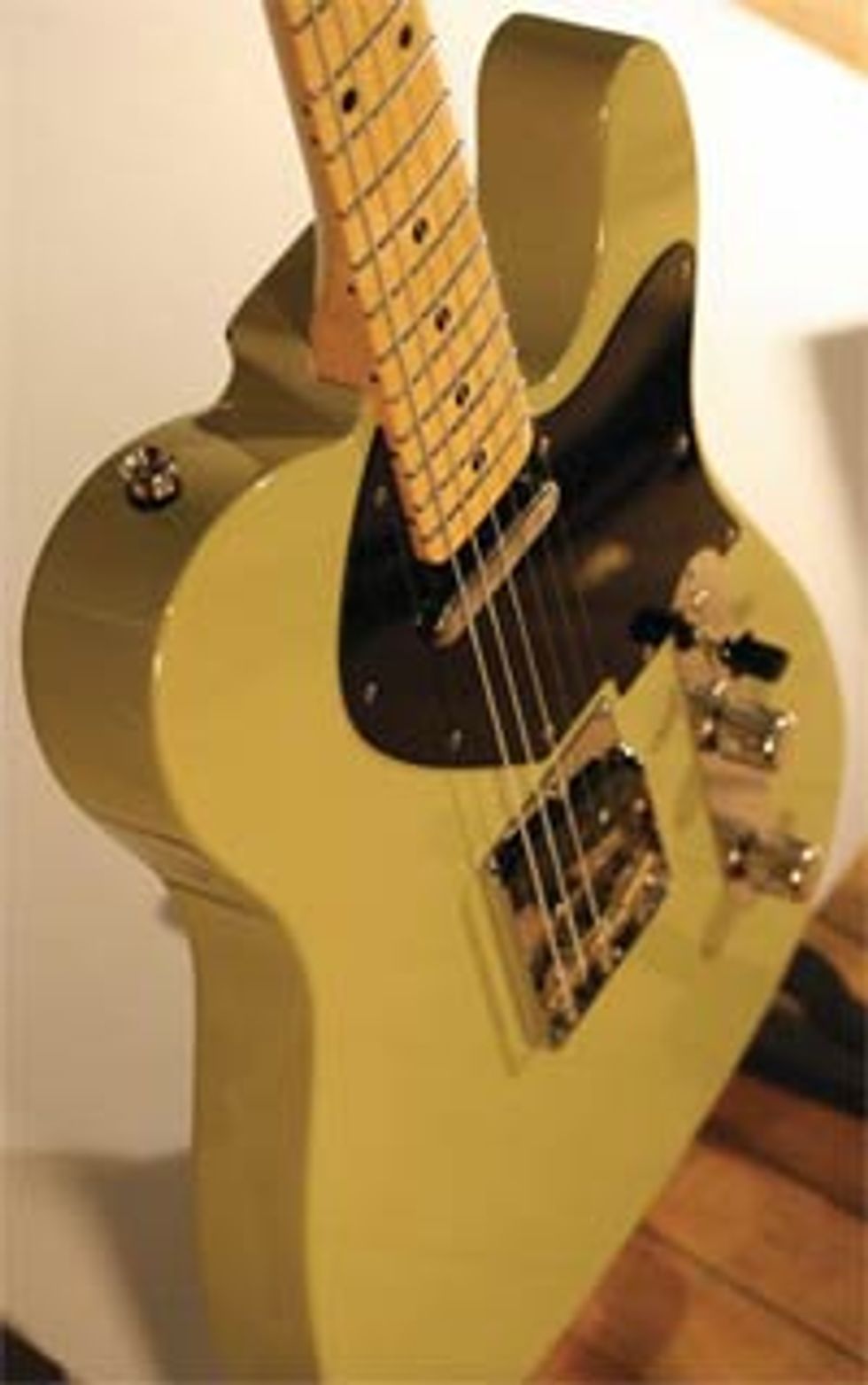 | Hahn Model 228 Chihoe Hahn’s Model 228 brings the Tele to a whole new, hand-built level. Every component is spec’ed to the highest degree; every detail—from the partially cut bridge a la Danny Gatton to the stainless-steel .10” thick neck plate—helped vault this guitar to Tele perfection. The 228 falls squarely in vintage territory, with Lollar pickups, classic tuners, old-school knobs and a thin nitro finish. This award goes directly to Hahn, who screws every screw and solders every point himself. “This is one of the best Teles I’ve ever played.” – John Bohlinger, October ’08, online
|
| Read the review... Watch the demo... |
| DeTemple Guitars Spirit Series Michael DeTemple has built a Strat exactly the way he wants it with the Spirit Series. It features DeTempledesigned pickups, trem, and truss rod, and is built by Michael himself. Luckily, the Strat Michael wants is pretty damn amazing. Reviewer Adam Hunt called the guitar [November ‘08], “quite possibly the best Stratstyle guitar built today.” The guitar improves upon the Strat model with increased sustain, a bit more beef from the pickups, and clarity with distortion. If you’ve got the cash, we’d venture to say it’s worth the wait. | 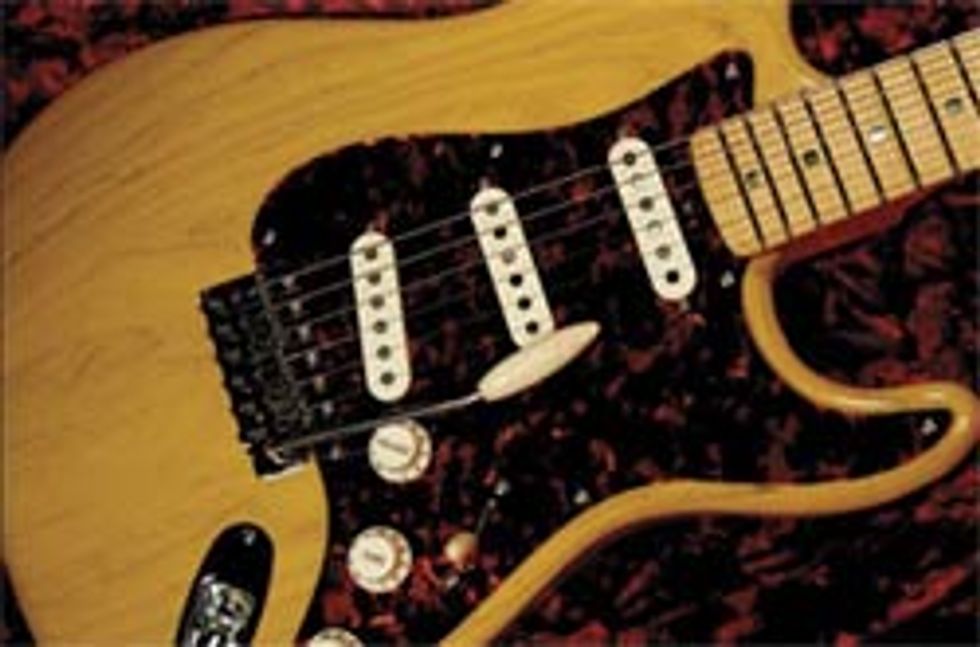 |
| Read the review... |
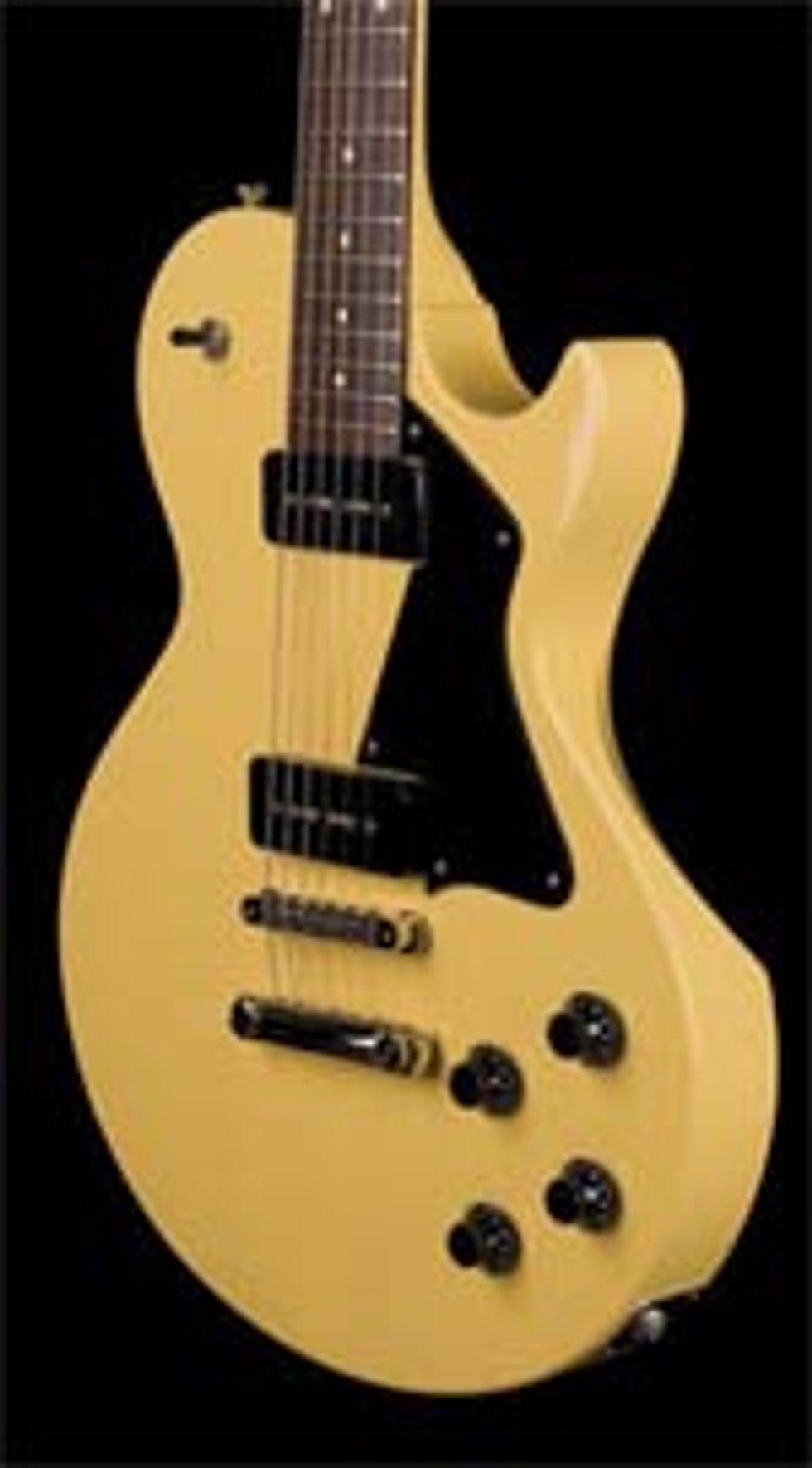 | Collings 290 Slab body, P-90s and TV Yellow nitro finish make the Collings 290’s vintage LP Junior channeling obvious. However, physical differences—a wider bottom, curved upper bout—make for slight visual separation. The sound, however was a refined version of the expected rough rock snarl. Lollar P-90s give the guitar a great clean sound, but open up with a little dirt. Reviewer James Egolf recommended the guitar for Junior aficionados, saying [June ‘08], “The 290 is truly a magical instrument.” Read the review... |
| Two-Rock Classic Type Two Unlike the others in this category, the Classic Type Two isn’t a direct emulation of anything. But how can you emulate a Dumble? The amp has drawn comparisons, and is faintly familiar to those tones, but forges its own path. In that respect, it wins this award for the comparisons put on it by others, rather than by the company itself. The Classic Type 2 is rich and detailed, imparted sustain on a Strat and calmed noisy guitars expertly. It is touch-sensitive and brought out the best in everything hooked into it—cabinet, guitars and effects. “[The Classic Type Two’s] rich, fat, detailed, nuanced tone should appeal to players who demand an amp that responds instantly to their input.” – October ‘08
| 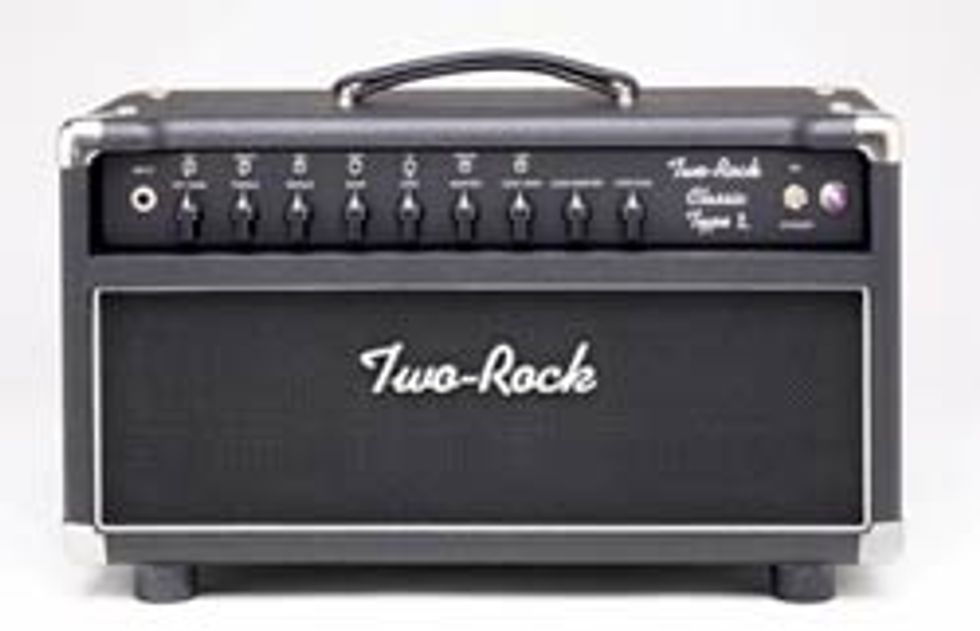 |
| Read the review... |
REDUX DELUXE
There’s an obsessive-compulsive bunch out there who will tweak forever to get it right. It doesn’t matter how well received something was the first time, dagnabit, they’re going to make it better. This group’s attention to detail and relentless improvements have given birth to a whole slew of second and third generation instruments that improve upon their predecessors—often just months after the predecessors hit stores. To these we say: keep on tweaking—our tone is better for it—and enjoy the Premier Gear Redux Deluxe Award.
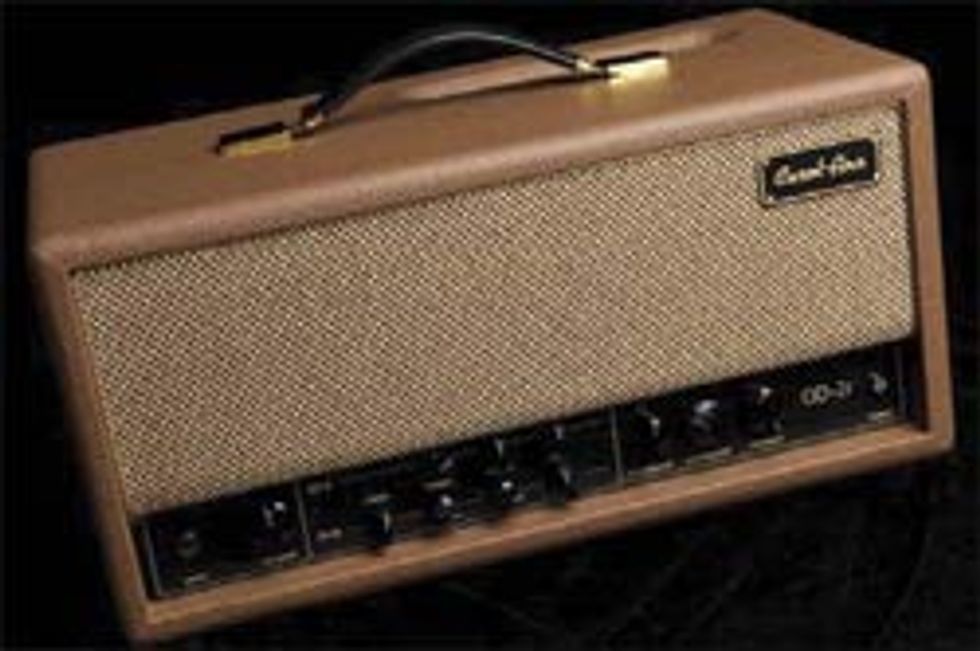 Read the review... | REVISITED: |
| Carol Ann OD2r -- Revisited The OD2r is a boutique amp that was slimmed down and tailored toward recording. The amp is versatile, with a switch for either 6V6 or 6L6s and two distinct channels. Both of the amp’s two channels were mind-blowers, with Channel A delivering perfect Strat tone, and Channel B delivering a completely new and different sound. Reviewer Steve Ouimette says, “I liked it so much that I’ve ordered one to be part of my arsenal of amps. After I had it for that brief period of time I just felt like there was no other amp that could achieve its tone, so I called up Alan and he’s going to build me one. Clearly, the cat is out of the bag.” | |
| Ibanez Tube King TK999HT An update of the nineties Tube King, the new version features a 12AX7 that delivers genuine tube-like distortion. The pedal is easy to get great sounds out of, and is a great choice when a tube amp isn’t an option. Said reviewer Gary Guzman [August ’08, online], “It can make any guitar setup with average pickups and amp sound amazing.” With a street price of $149.99, the Tube King nearly won the Nice Price award as well. | 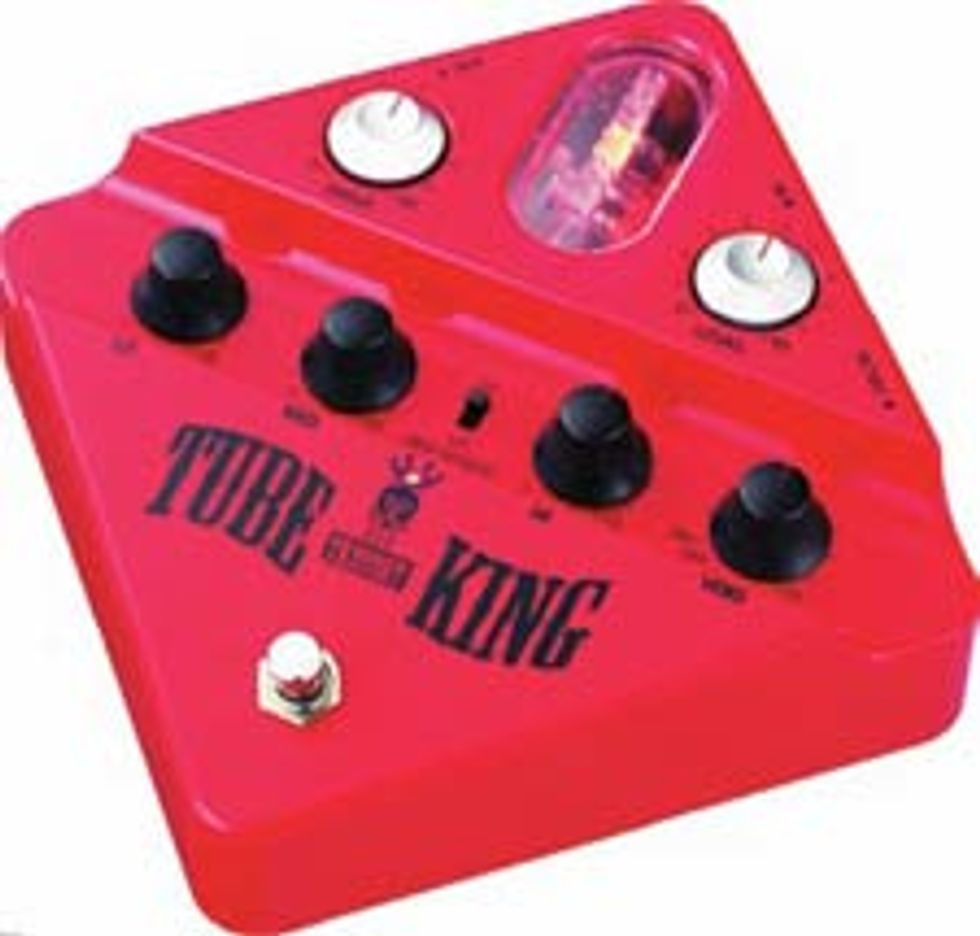 |
| Read the review... |
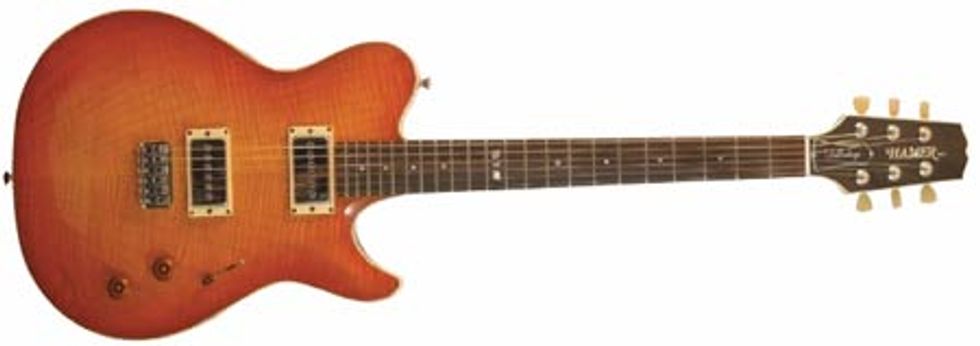 Hamer Talladega Pro We got our hands on the Talladega Pro a mere half-year after the Talladega. The Talladega Pro was spot on; it brought together a wraparound bridge and humbuckers, dropped the controls in a classic LP configuration, and classed it up with ivoroid binding on the mahogany neck. The Pro really separated itself from its predecessor by offering a thick, Gibson-like tone with a Fender scale and feel. Read the review... “If you’re a Fender aficionado and switching between different scale lengths gives you the willies, the Talladega Pro could handle your humbucker-flavored chores with aplomb.” – July ‘08
|
VINTAGE VIBE
It goes without saying that vintage instruments are put on an untouchable pedestal. They command more money than some houses, and are the benchmark against which all else is measured. So it’s only appropriate that new instruments emulate their look, feel and tone. Nearly everybody does it, with different levels of success. Here’s the gear that took us back this year, earning them the Premier Gear Vintage Vibe Award.
| Jaguar Twin The Jaguar Twin took us by surprise. The 2x12 combo, which can be switched between 45 and 30 watts, somehow channels every amp on the short-list of vintage holy grails, nailing Bassman, JTM-45, AC-30 and beyond. Add high-quality components and spectacular build quality, and we couldn’t ask for more. “We’ve been really fortunate around here to have had the opportunity to play through some truly incredible amps… the Jaguar Twin is on the same level as the best of them.” – June ‘08
| 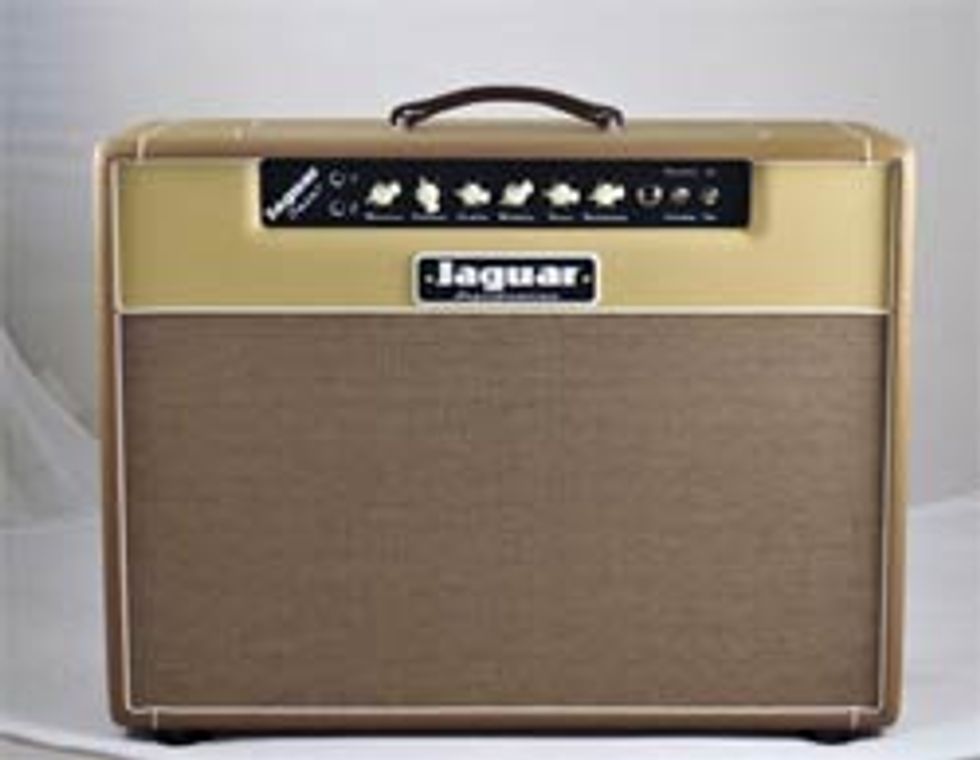 |
| Read the review... Watch the demo... |
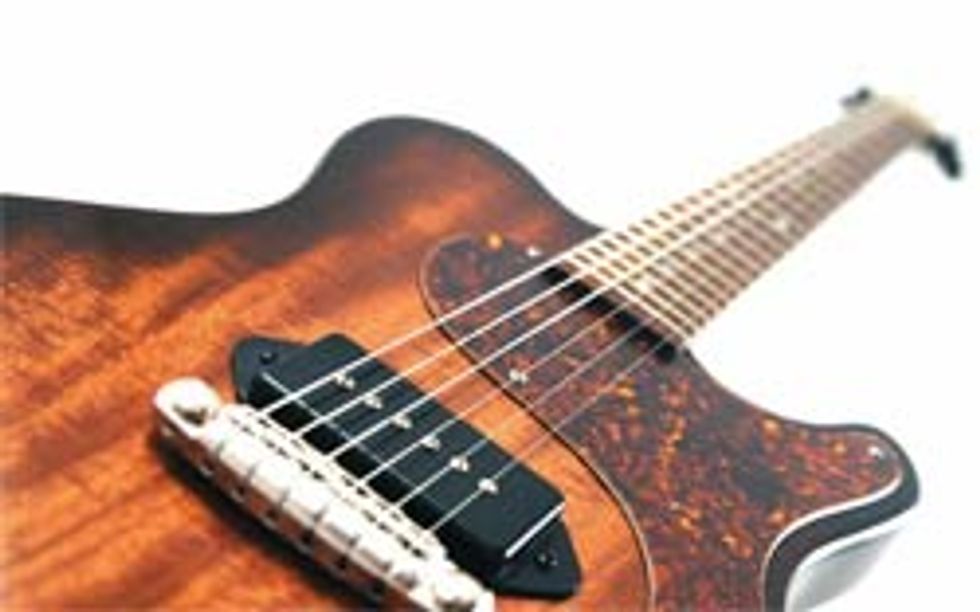 | Nik Huber Junior & Special Nik Huber’s Junior & Special harken back to the “golden age” with fat, Gibson-esque neck profiles and kickin’ P-90s. Despite figured mahogany and Brazilian rosewood fingerboards, there’s a stripped-down feel that reminds us why we loved those vintage LPs in the first place. Reviewer James Egolf sums it up [October ‘08], “Even though the Junior and the Special are intended as stripped-down rock n’ roll machines, their high-end pedigree is always evident.” |
| Read the review... |
| Campbell American Guitars Transitone The Transitone’s vintage vibe was more than skin deep. Besides the guitar’s retro-cool shape, it broke away from the vintage pack with an uncannily broken-in feel from day one. Fitted with Jason Lollar “Jazzmaster” pups, the guitar handled Tele twang, blues and funk remarkably. Reviewer Michael Ross said [August ’08, online], “The Campbell American Transitone is one of the few currently made guitars that offer the vintage experience at well below vintage prices.” Read the review... | 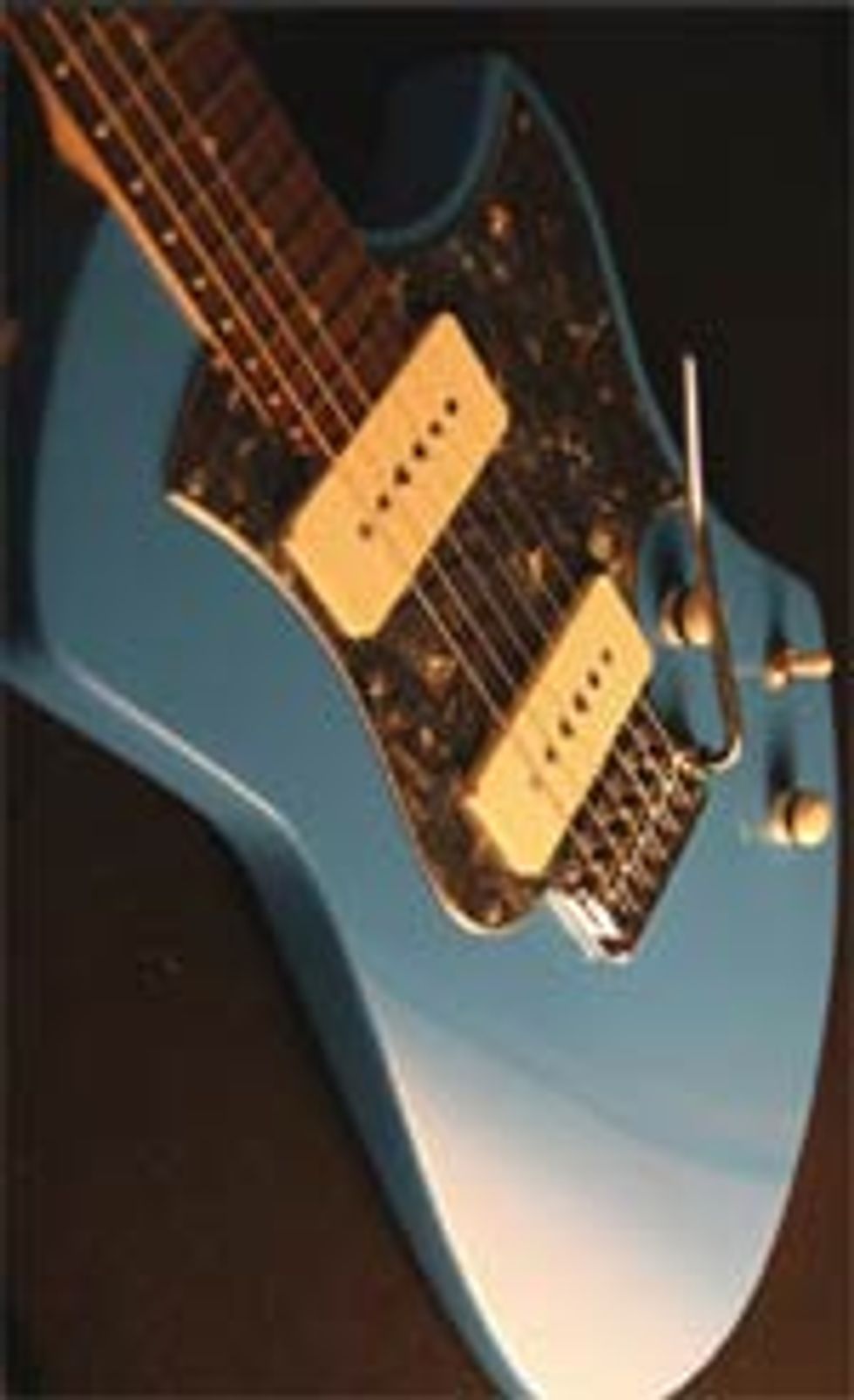 |
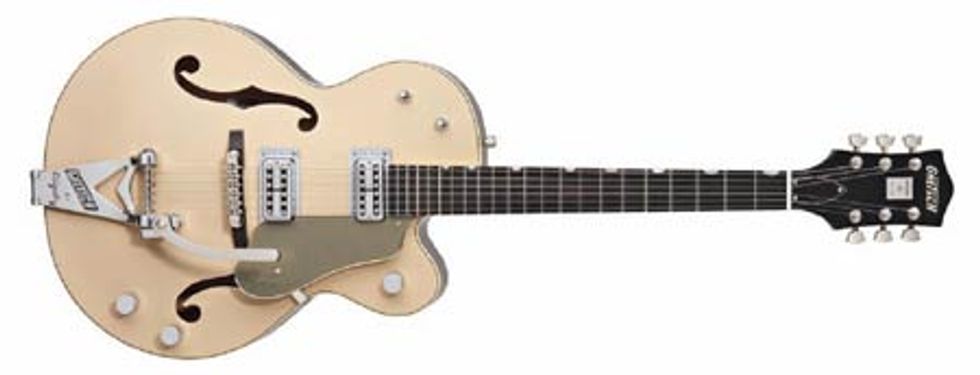 Gretsch G6118T “Double Annie” Gretsch celebrated their 125th anniversary this year, and celebrated with the release of several guitars that are reminiscent of the roots of rock n’ roll. The Double Annie is one of those guitars, conjuring images of Gretsches from the fifties and sixties. The company managed to take a step forward while paying close tribute to vintage instruments by incorporating new bracing and TV Jones pickups. But even the TV Jones PowerTrons added to the vintage feel and sound, evoking the old FilterTrons. In the end, this guitar was as Gretsch as it gets. Said reviewer Chris Burgess [September ’08, online], “If you’re looking to Gretsch-ify your sound, and you want a perfect match-up for your vintage amp, the Double Annie would be a great way to go. Read the review... |
AURA
Some of the gear we reviewed just had a certain je ne sais quois about it, something that kept us coming back for more, and starting showing up in our dreams. It’s sexy, mysterious and putting us into withdrawals. And we can’t even place exactly why.
To the gear that just got to us: above and beyond how good you are, you have that certain… something else. Please call. And please accept our Premier Gear Aura Award.
To the gear that just got to us: above and beyond how good you are, you have that certain… something else. Please call. And please accept our Premier Gear Aura Award.
| Duesenberg Mike Campbell Signature We didn’t necessarily want to fall all over ourselves for a signature guitar… it’s like falling for someone else’s girl. But the sparkly, racing-striped semi-hollowbody won us over with a reliable guitar that shined with every configuration we threw at it. Rhythm, rock, country, blues, jazz were no problem, and reviewer Chris Burgess was forced to buy it, after he realized his playing would never be the same. Read the review... “I’ve always liked the idea of a guitar that did everything equally well, but had assumed that was a pipe dream. The Duesenberg handled everything fearlessly.” – February ‘08
| 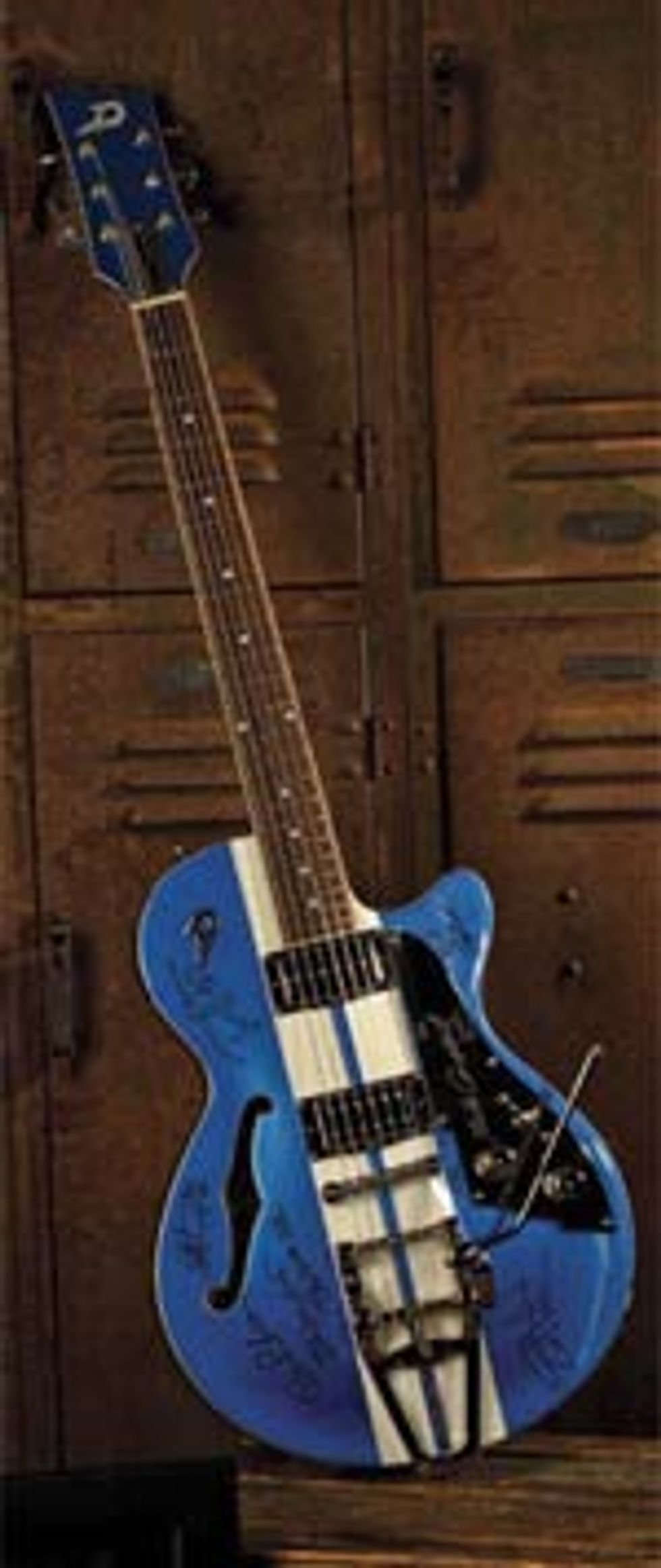 |
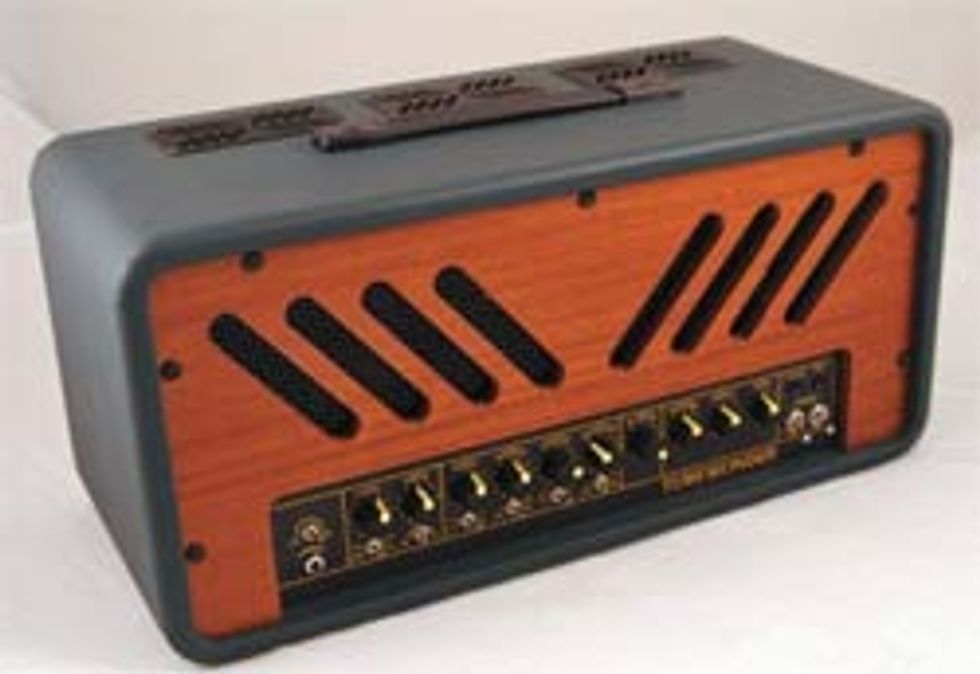 | Tubewonder Harmonic Control Amplifier The Tubewonder blew our mind with the ease at which it encouraged creation of new tones—our own tones. Reviewer James Egolf explained, “The Tubewonder is basically a blank canvas that provides the tonal flexibility to give the player what they want—not what Leo Fender envisioned, or Jim Marshall or Dick Denney, but what you want—delivered at all times with impeccable tone.” Reverb, an array of exotic tubes, and a sound that blocked out the rest of the world solidified the Tubewonder’s place in the Aura category. |
| Read the review... |
| REVISITED: | 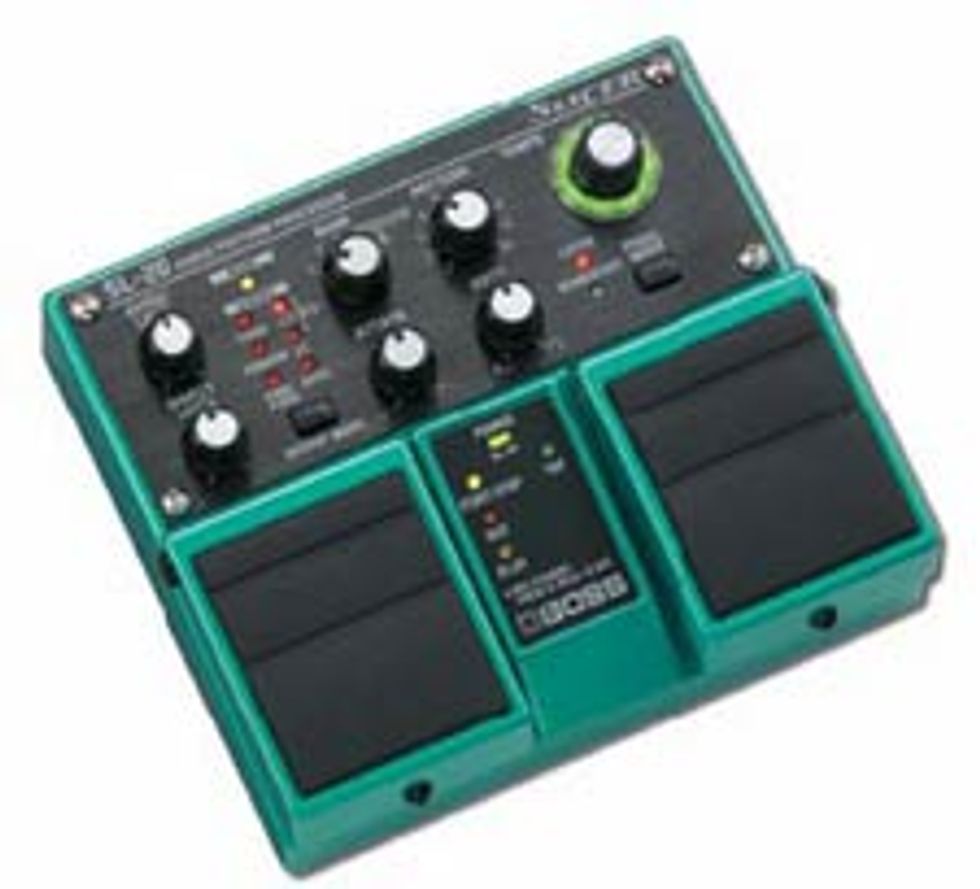 Read the review... |
| BOSS SL-20 Slicer -- Revisited “It’s only been a month since I reviewed BOSS’s SL-20 Slicer, but I’ve already been battling the withdrawal symptoms for a few weeks. I find myself dreaming in spacious stereo rhythms; I see the Slicer’s Christmas tree lights everywhere I look; I’m tapping out tempos while I wait in line at the bank. Yes, yes, it’s not for everybody, but it’s definitely for somebody, and they’ll likely get the addiction, too. You’ve been warned.” |
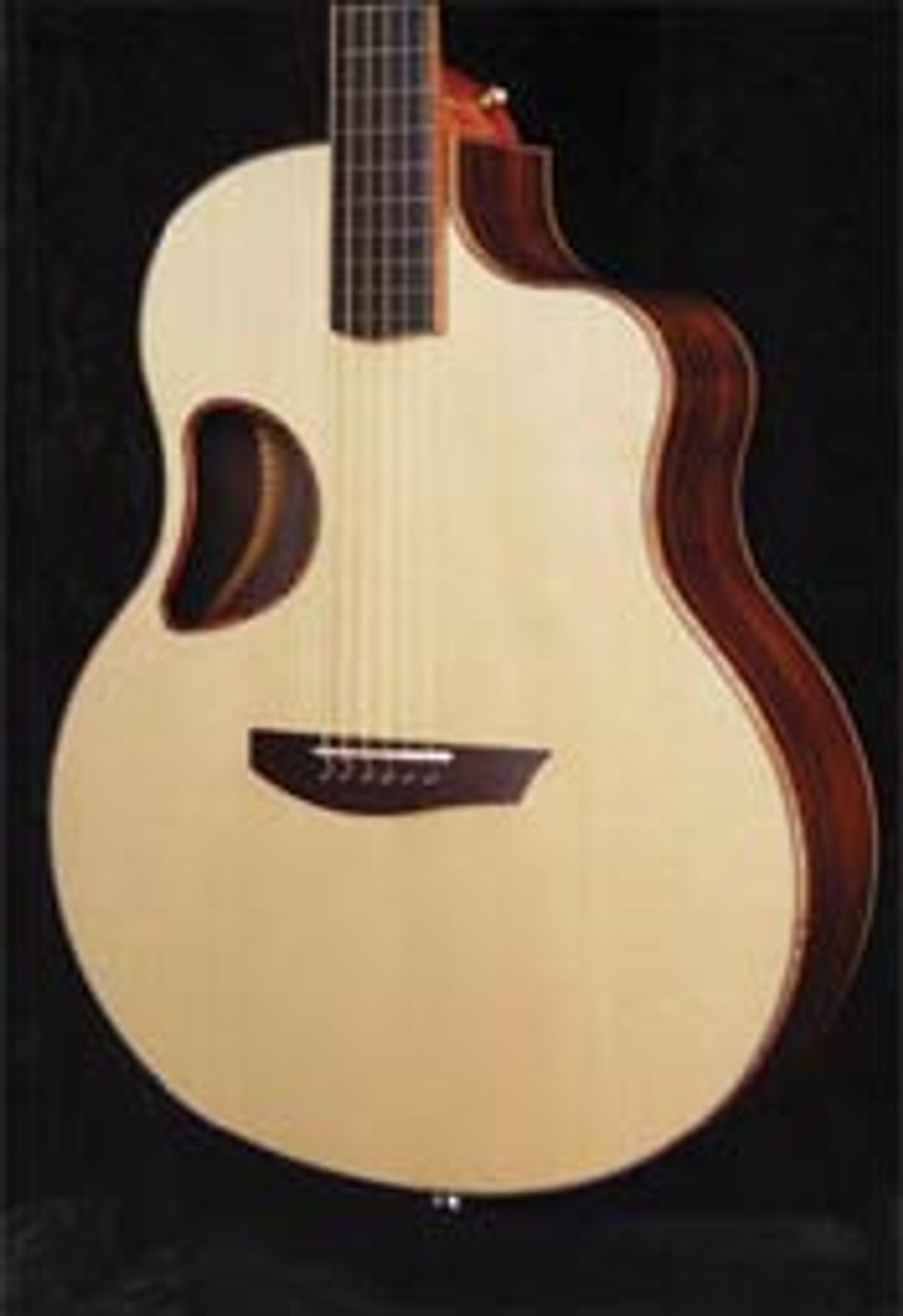 | REVISITED: |
| McPherson MG3.5 -- Revisited “Simply put, McPherson’s 3.5 has absolutely ruined me. Every acoustic I play is now subconsciously measured against the 3.5’s big-but-articulate sound and rock solid build, and of course nothing can stand up to it. It’s like being dumped by a supermodel, and being forced to return to the speed dating pool at the local Marriott. There’s little wonder McPherson’s artist list includes some of the biggest names in music. The 3.5 has set an absurdly high standard in my life. Thanks for nothing.” – Adam Moore Read the review... |
USER-FRIENDLY
Sure, great tone always involves a learning curve. It can take a while to really get to know your gear, and it often pays off handsomely if you’re patient. But isn’t it nice, once in a while, to find something that makes you feel like you know it right away? For the gear that lets us get right to playing, and lets us stay there, here’s our User- Friendly Premier Gear Award.
| Catalinbread Serrano Picoso The Serrano Picoso doesn’t try go too far in coloring your tone, but instead imparts a clean, transparent boost rarely seen in nature. Said reviewer James Egolf [March ’08, online], “The Serrano Picoso sounds like the mythical “More” pedal guitarists have been clamoring for, adding enough boost to be noticed, all while staying off of your rig’s inherent tonal fingerprint.” With an equally tiny footprint and price, this one’s a no-brainer. Read the review... | 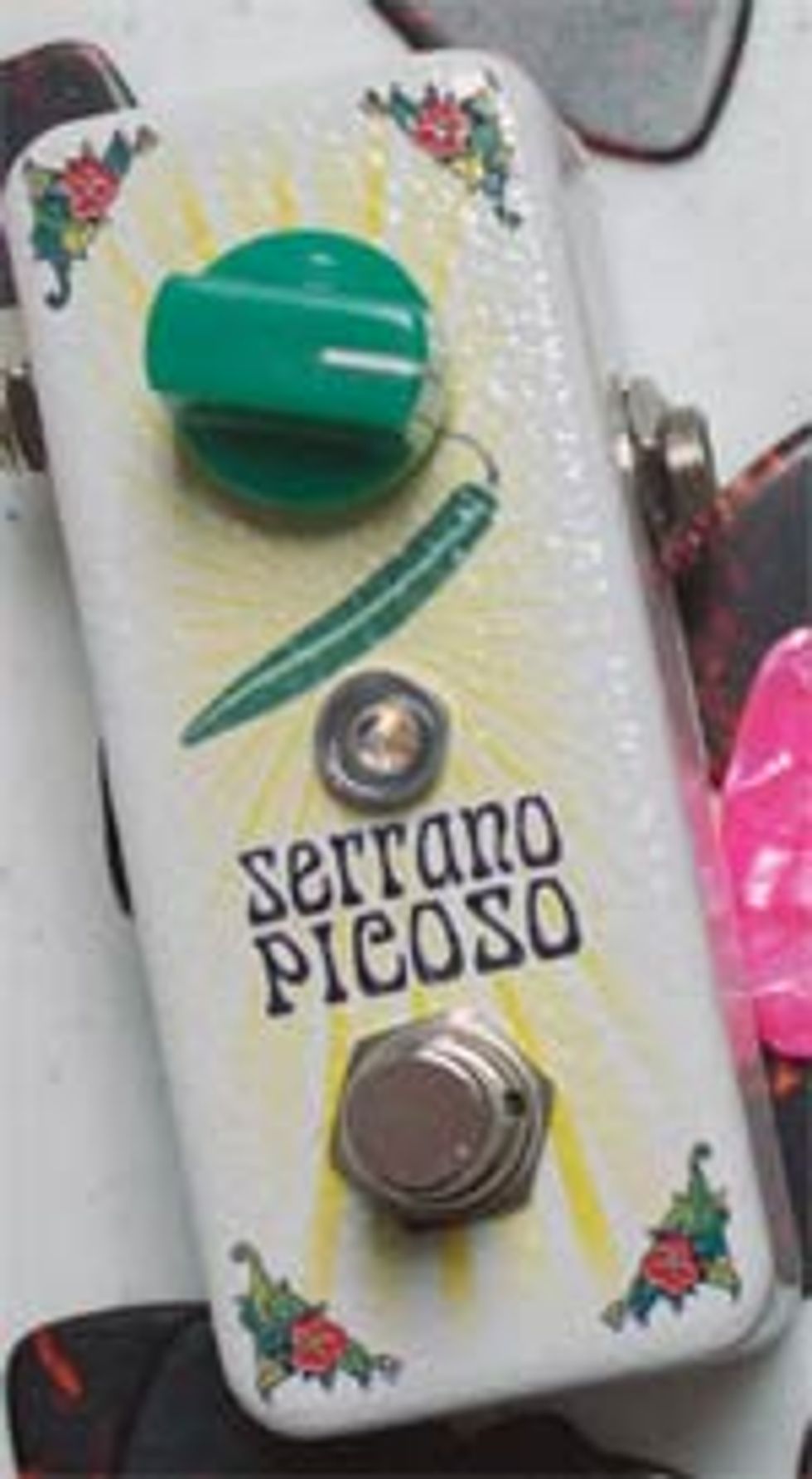 |
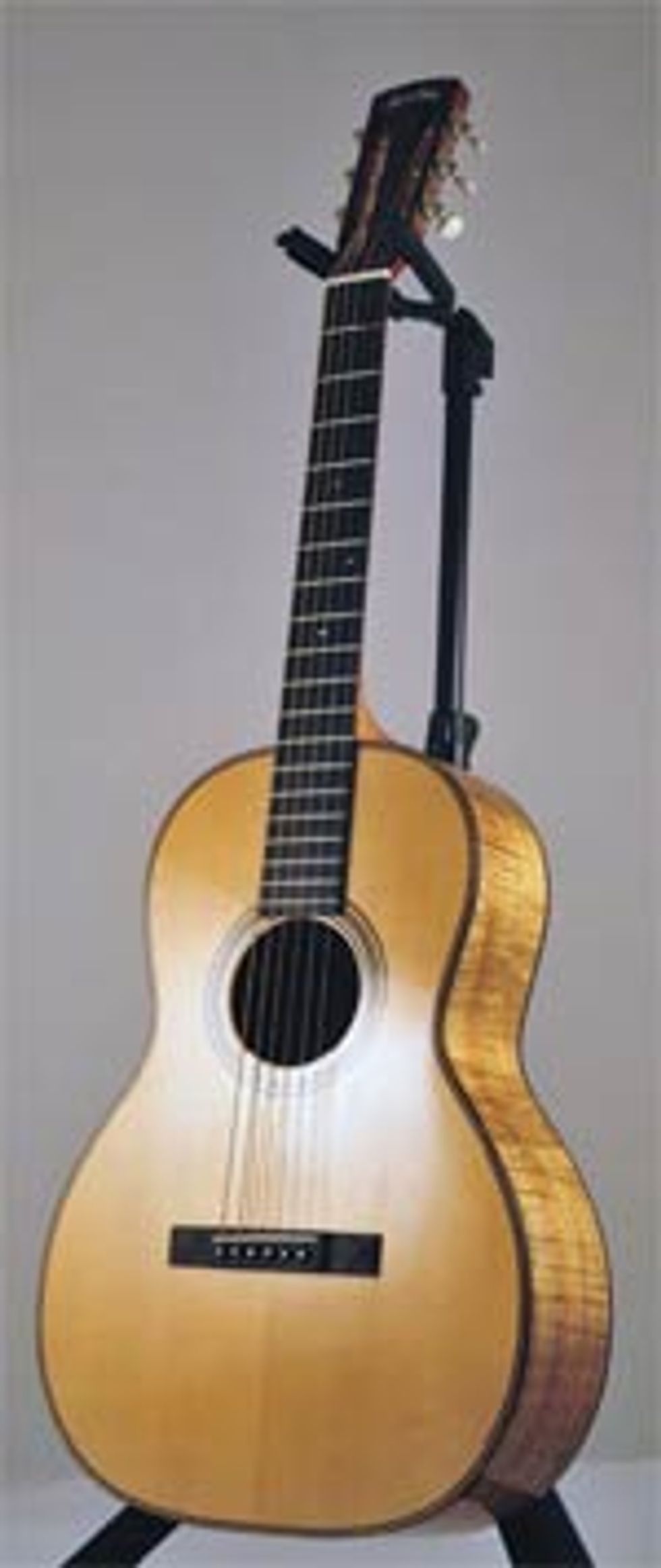 | Huss & Dalton 00-SP Custom The small-bodied 00-SP is remarkable in that it does just what it’s supposed to do extremely well, with no surprises—good or bad—up its sleeve. It’s incredibly beautiful, with flamed Australian blackwood back and sides and great appointments. The guitar has a 12-fret scale, but manages to retain low-end focus and cohesive sounds throughout the neck. There’s no breaking in this guitar, you’ll love it from the word go. Read the review... “If you dig quality gear and are auditioning small-bodied acoustics for fingerstyle chores, do yourself a huge favor and check out a 00-SP.” – July ’08
|
BRANCHING OUT
It’s easy to ride the wave of past successes and reissue the same type of gear year in and year out. In an industry steeped in tradition, it’s a pretty sizeable risk to step out of the box you’re known for. This year, a number of companies took the risk with great success, from a pickup manufacturer’s debut amp to a certain acoustic company’s foray into electrics, we salute your courage and quality with the Premier Gear Branching Out Award.
| REVISITED: | 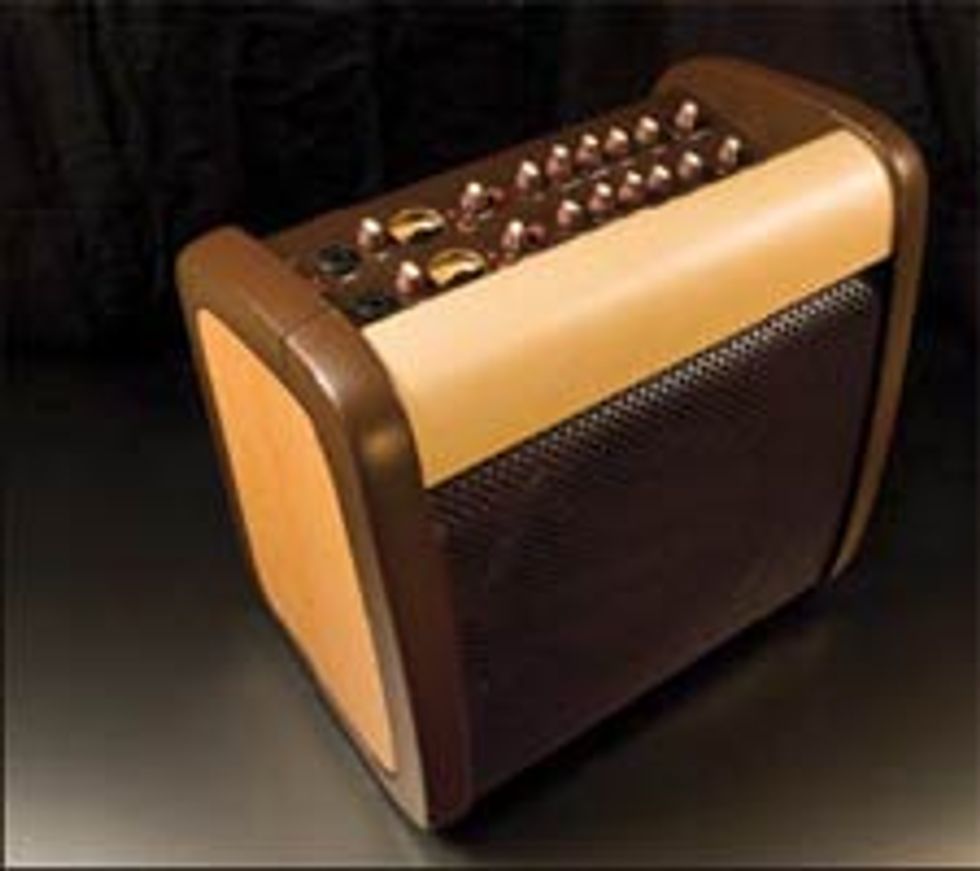 Read the review... |
| L.R. Baggs Core 1 Acoustic Amp – Revisited “After I reviewed the Core 1, I was so impressed that I sold my PA system and bought one. I’ve used it in many different situations over the past few months, and it’s never let me down. The control that’s available over each channel ensures that I get exactly the tone I’m looking for whether I plug in two guitars or a guitar and vocal mic. I’ve never needed more than the 200 available watts in a stand-alone situation, and the sound somehow doesn’t compete with room noise in a restaurant or bar—it cuts through it, so the sound is clearly audible even through background noise. Its lightweight, compact size and durability make it the ideal companion for the road. I’ve used it as a gig-saving stage monitor at outdoor festivals, and used it as a direct box as well, allowing me to have the best of both worlds—ultimate guitar-friendly control over my sound, and 2000 watts of power through a massive PA system. I can’t find one single thing to complain about after almost a year with it.” – Gayla Drake Paul “The Core 1 mixes innovation, perfect sound and high style with affordability and value.” – January ‘08
|
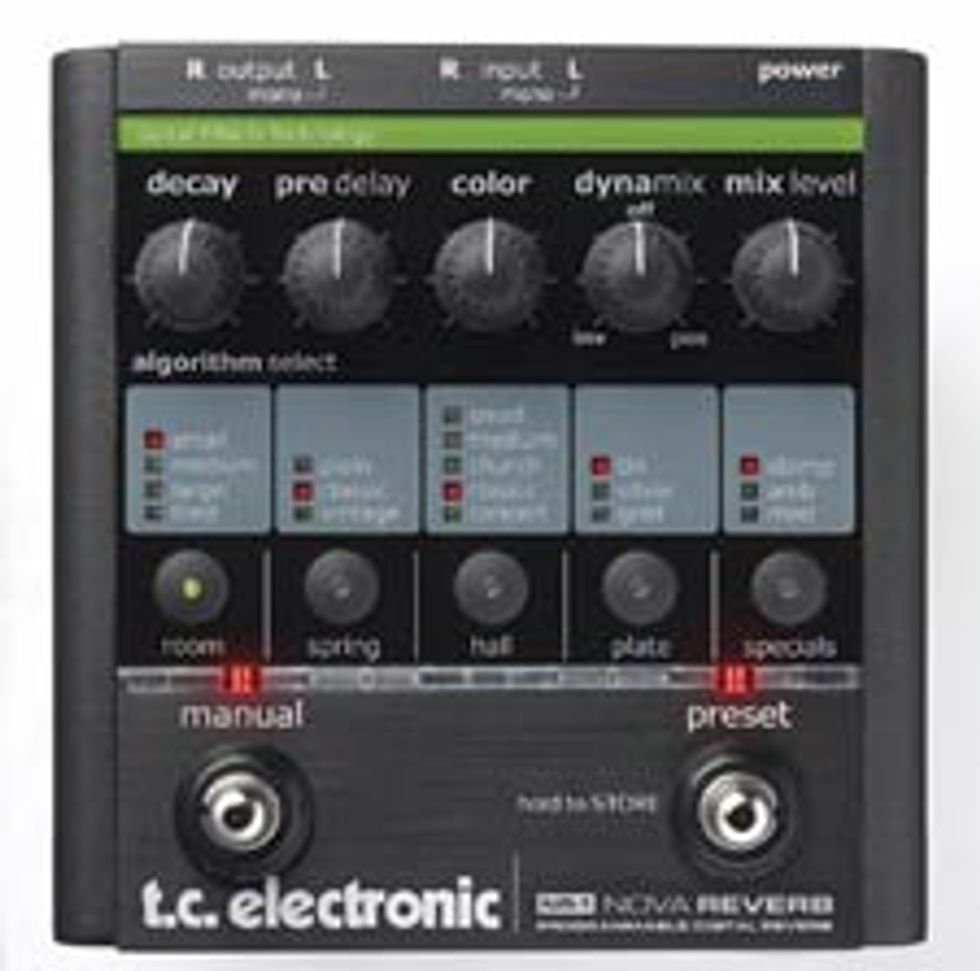 Read the Delay review... Read the Reverb review... | T.C. Electronic Nova Series T.C. Electronic’s Nova Series represented a shift back to their roots, yet the floor pedals were different enough from their usual rack-mounted effects that they earned the Branching Out award. We reviewed the Reverb and Delay, both receiving stellar marks for their versatility, musicality and authenticity. Said reviewer James Egolf about the Delay [April ‘08], “…for a meat and potatoes, throw-it-in-your-gigbag delay, the TC is unbeatable.” |
| Taylor Solid Body The most obvious choice for this award was Taylor’s high-profile foray into the electric solidbody realm. Taylor pulled out the stops for the release, taking the guitars on an extensive road trip around the country, and keeping their visibility high. Luckily, the guitars delivered. With specially designed ¾-sized pickups (in the Custom and Classic models), stunning tonewoods, comfortable weight and feel, redesigned hardware and a tone that brought out the best in our reviewer’s amplifiers, Taylor put 100 percent into these releases, and it showed. Read the review... Watch the demo... “They are premium solidbody electric guitars from a company who has redefined the acoustic world, and I have no problem getting behind that.” – August ‘08
| 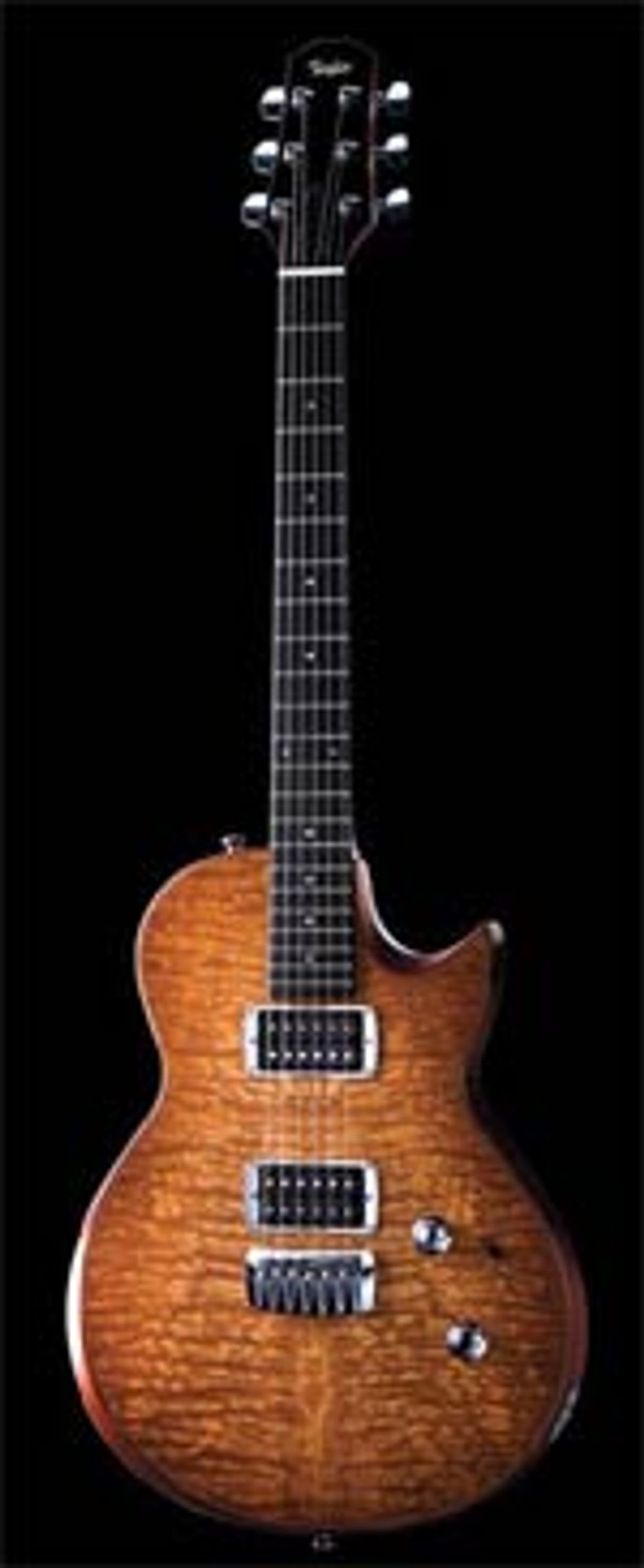 |
ARTISAN
While we played more great gear than anyone really has a right to ask for, some of the things we reviewed were just so “over the top,” “beyond the beyond,” or “off the hook” in their craftsmanship, attention to detail as well as their artfulness, we just can’t describe them without prepositional phrases like these. Suffice to say, these items will elicit double-takes when taken onstage. For the gear whose tone and build quality was matched only by its inspiring artistry, here is our Premier Gear Artisan Award.
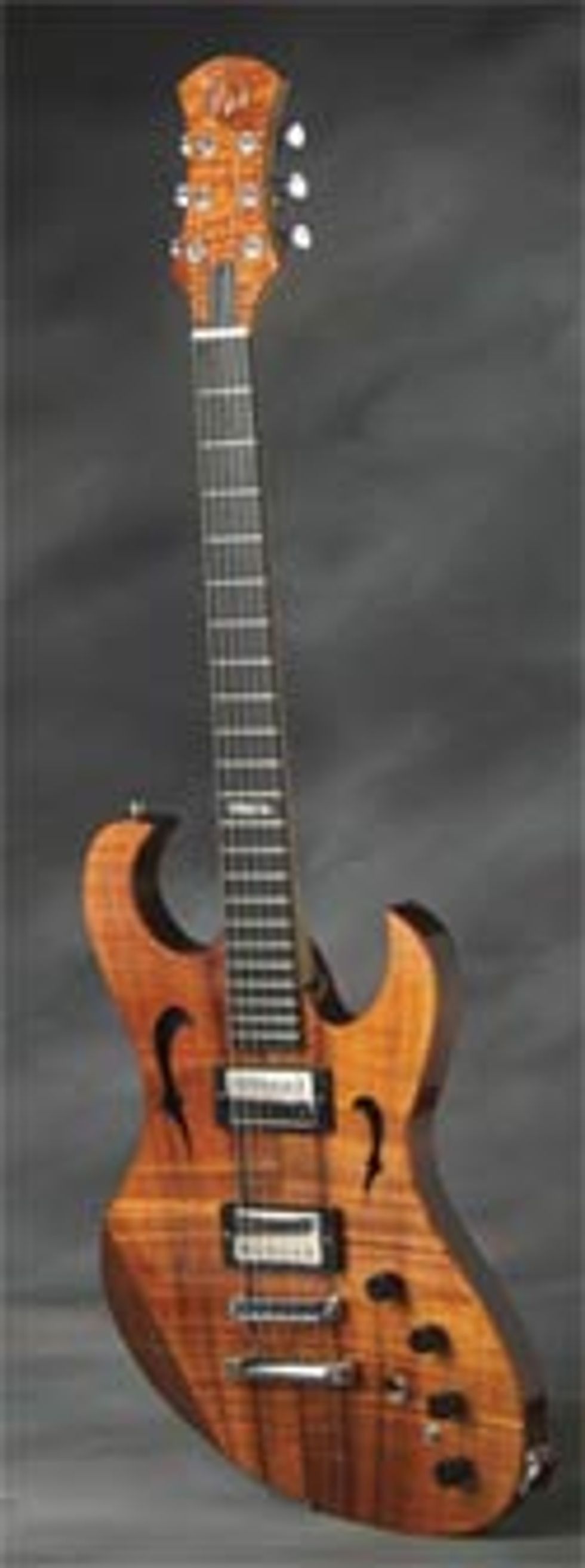 | Brown’s Guitar Factory BGF Guitar The first guitar from a bass maker could’ve won the Branching Out award, but the exquisite shimmer of the koa top and headstock faceplate placed the guitar solidly in the artisan category. The BGF features a shape that will stand out on stage, and a pickup configuration that allows for endless tones from humbucker to single coil to piezo and onboard ghost preamp and any endless combinations of those. Reviewer Brett Petrusek said [April ‘08], “Brown’s BGF Chambered Guitar provides a great range of tones to pull the player through the most demanding of musical situations, and the craftsmanship is top-notch.” Read the review... |
| Xits Piper X30 Often, spicing up an amp consists of a new color of tolex. This is not the case with Xits. The Piper X30 combines stunning woven vinyl and exotic hardwoods for a beauty of an amp. The artistry extends to less visible places—ebony on the backplate, finished wood inside—and to the crafting of the amp’s AC30-inspired tone. Thick, loud and articulate, both channels are stunners. “…a handmade amp of unsurpassed quality, exceptional good looks, and astounding tone.” – October ’08, online
| 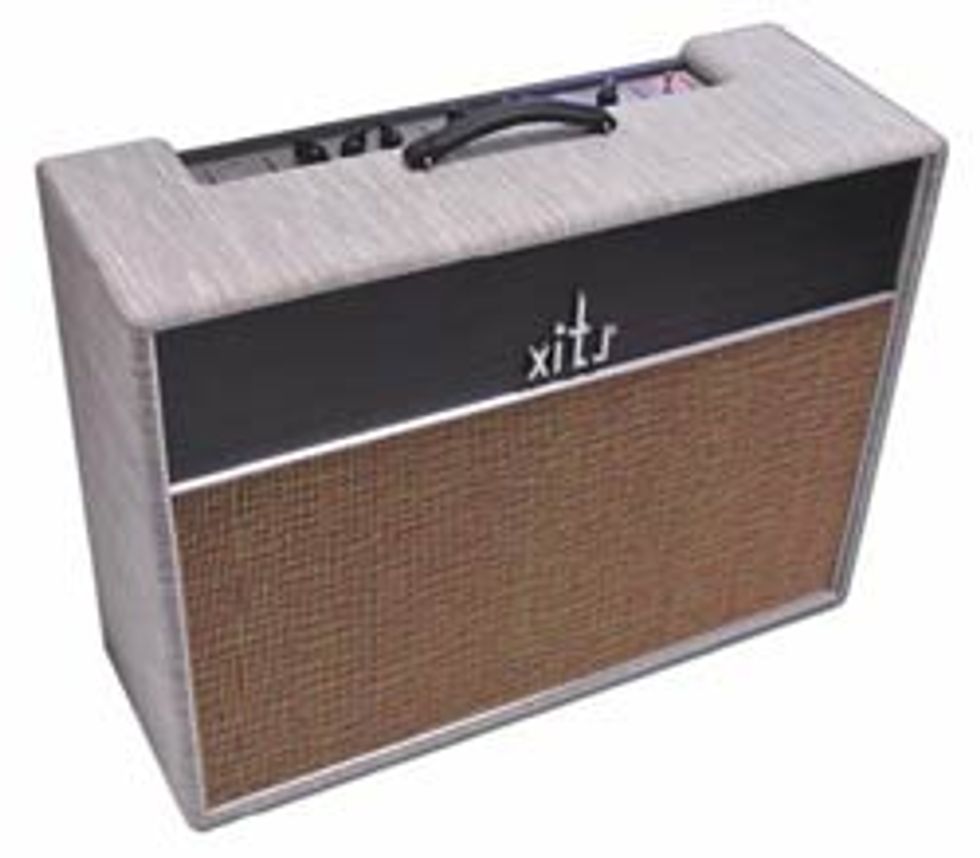 |
| Read the review... Watch the demo... |
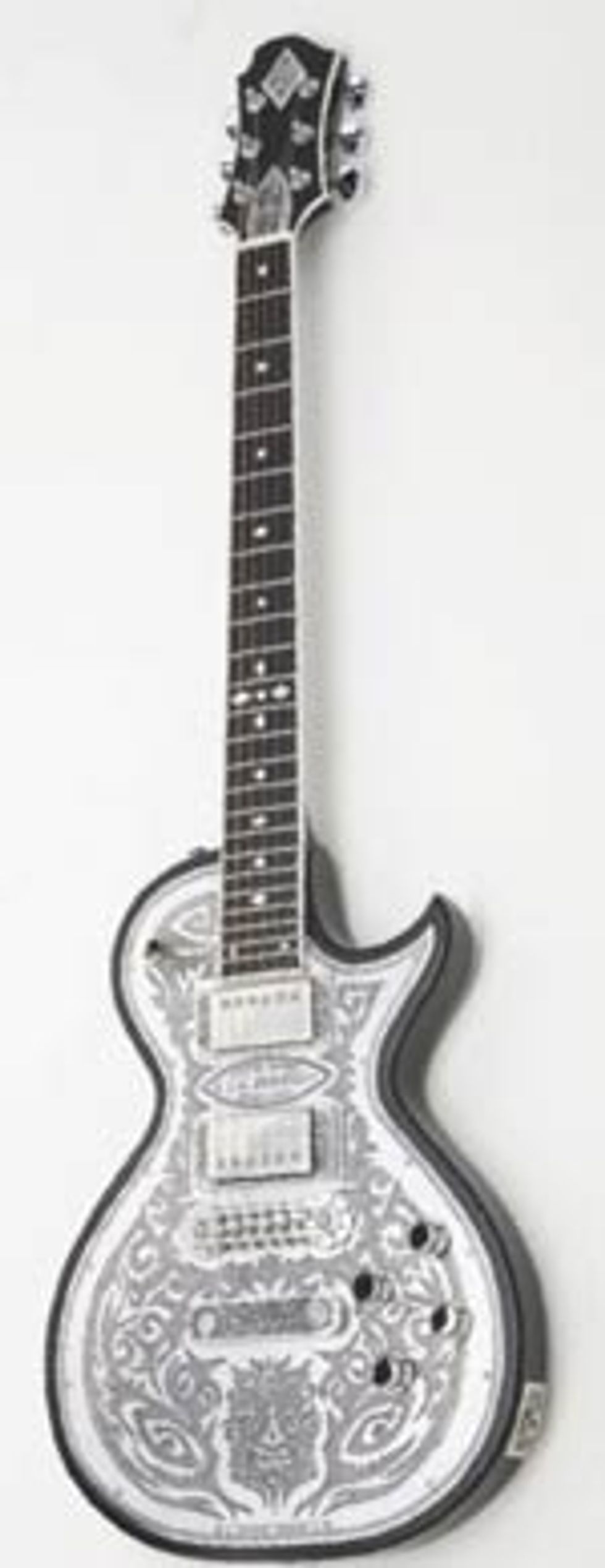 | Zemaitis Tribal Tattoo Guitar We could stare at Zemaitis’ intricate engraving for hours, and everything about the guitar—from the looks to the sound to the price—makes a statement. With a metal top engraved by Zemaitis’ long-time engraver Danny O’Brien, the single-cut Tribal Tattoo excels in its clean tones. As reviewer Adam Hunt put it [September ‘08], “In terms of playability, tone and ergonomics, the Tribal Tattoo is a top-tier guitar that anyone would be proud to add to their collection.” Read the review... |
| Remember to check out our full list of top rated gear from 2008, only on premierguitar.com. |








![Rig Rundown: John 5 [2026]](https://www.premierguitar.com/media-library/youtube.jpg?id=62681883&width=1245&height=700&quality=70&coordinates=0%2C45%2C0%2C45)




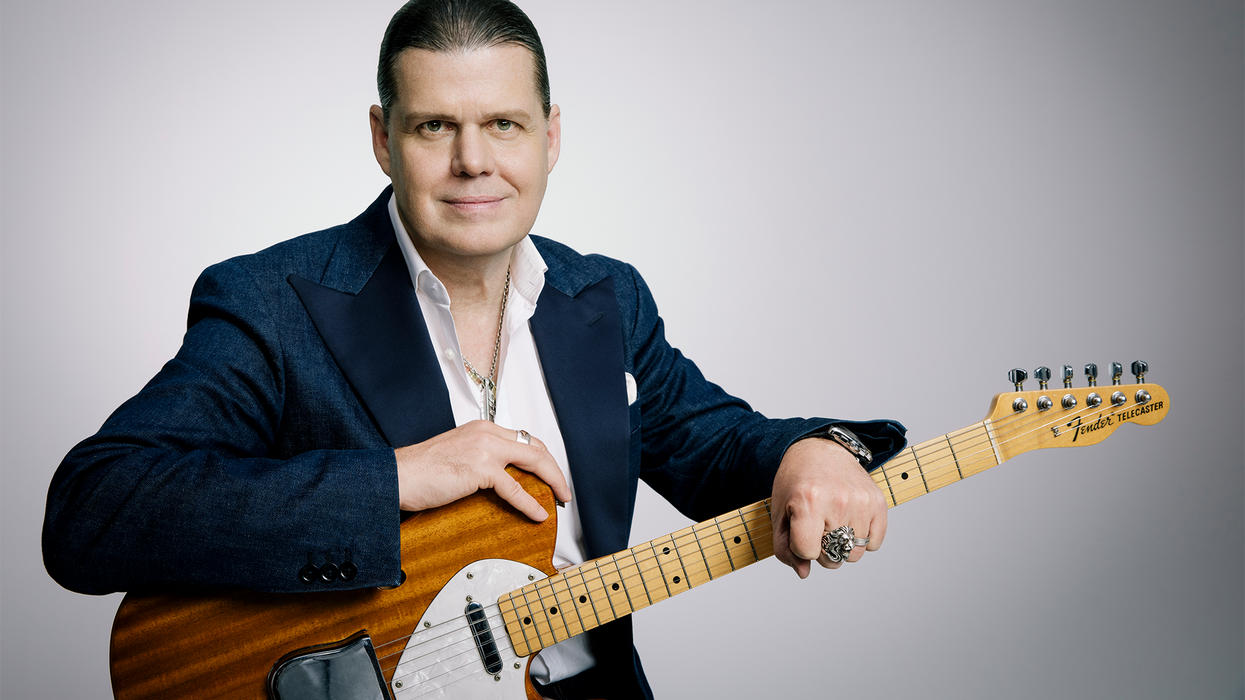

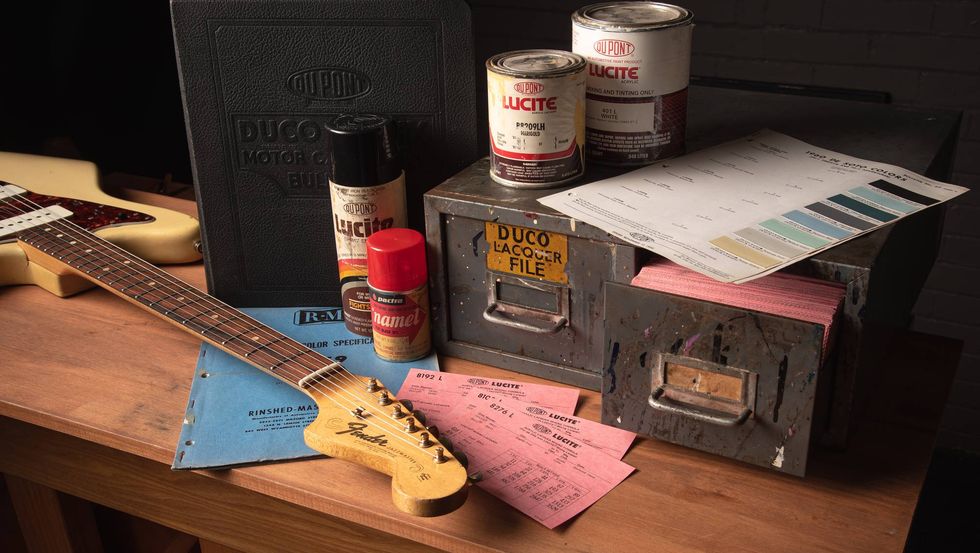
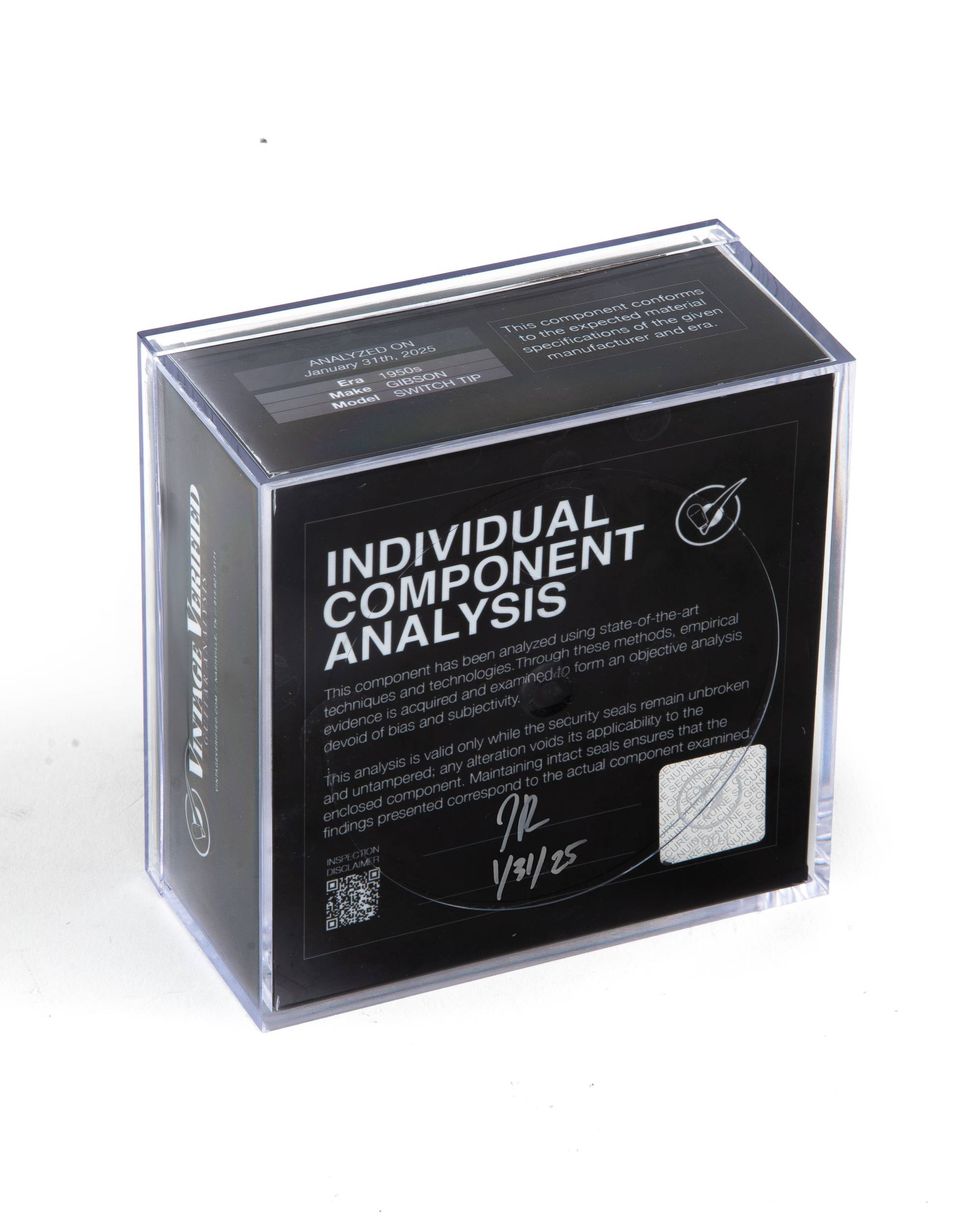
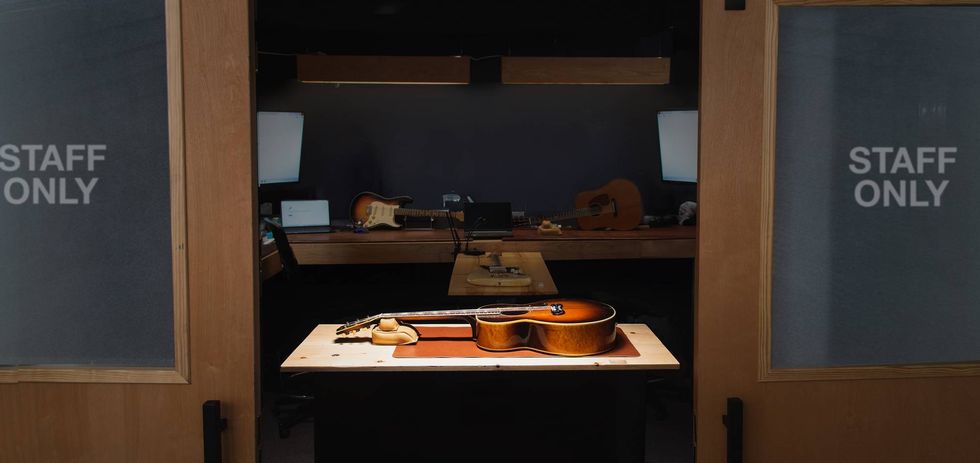
![Rig Rundown: Russian Circles’ Mike Sullivan [2025]](https://www.premierguitar.com/media-library/youtube.jpg?id=62303631&width=1245&height=700&quality=70&coordinates=0%2C0%2C0%2C0)






